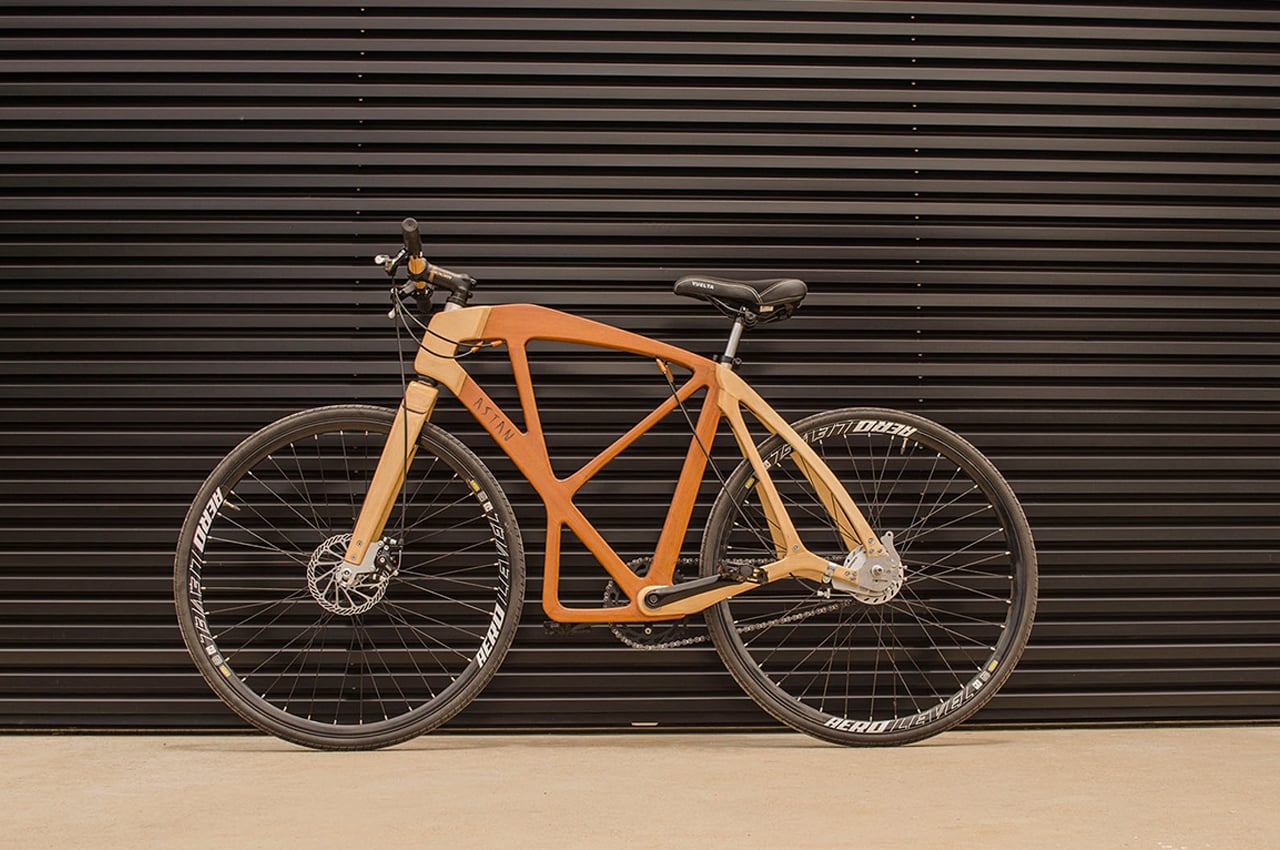
The Astan Bike is a plant-based bike made from natural fibers and glued together with plant resin.
You’ve heard of plant-based meat, but what about a plant-based bike? As society confronts the issue of overconsumption in light of climate change, the destructive aspect of manufacturing is coming to light. Mining for aluminum to make the bicycles we know and love requires a whole ton of energy and a lot of land.
Designers: Guilherme Pella and Nicolas Rutzen
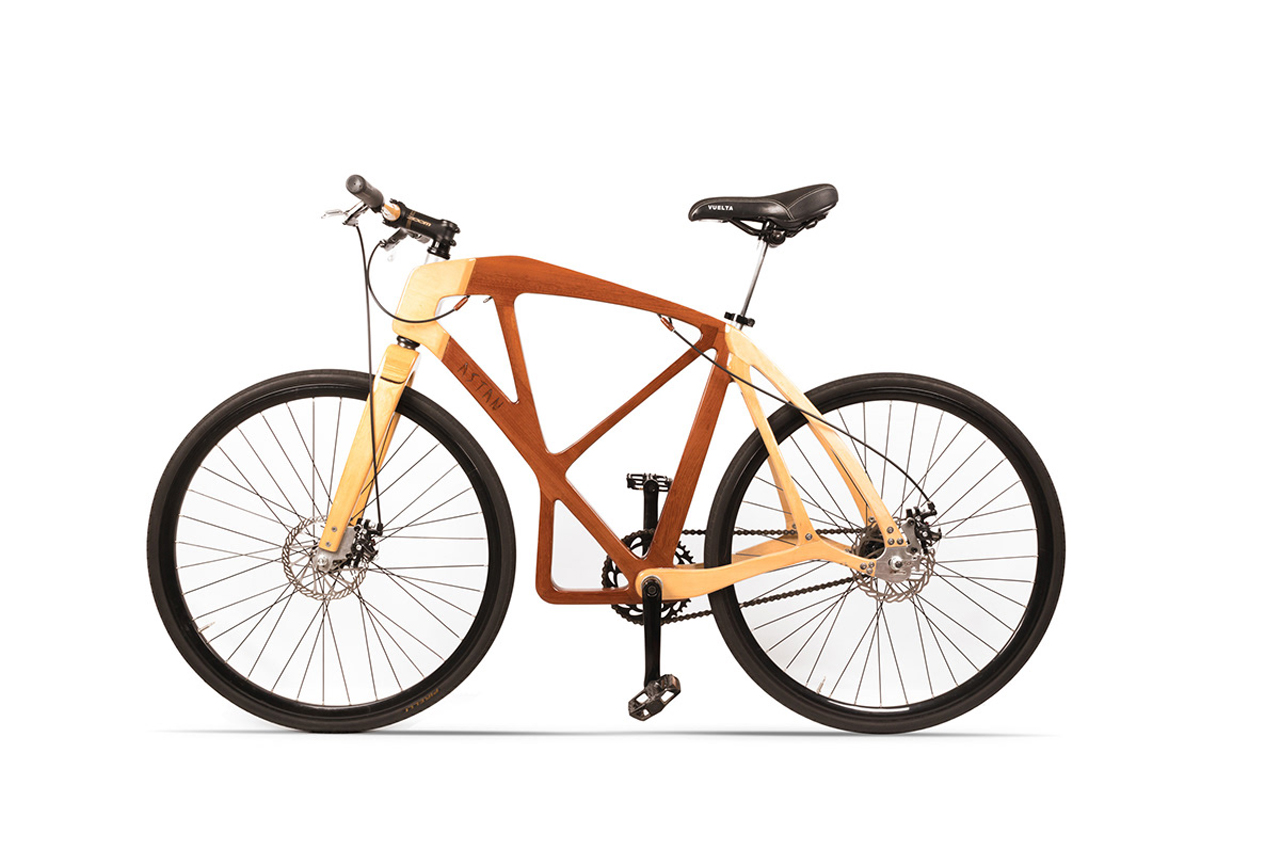
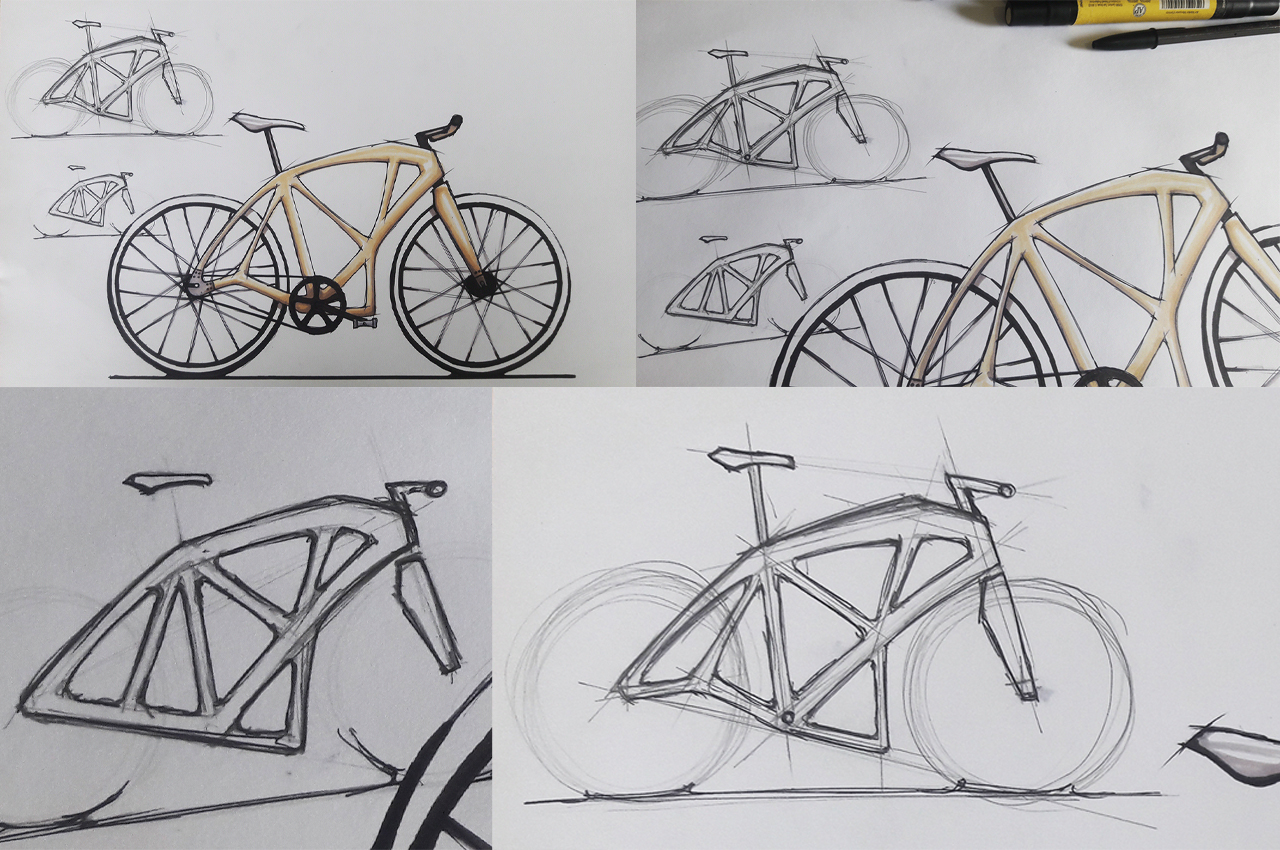
Using heavy machinery, swaths of forests are cleared and pits of dirt are dug to mine for Bauxite, an ore that commonly contains aluminum. With hopes of changing the face of bicycle manufacturing, two designers, Guilherme Pella and Nicolas Rutzen got together to create Astan Bike, “a bike made of natural fibers that is lighter and stronger than aluminum bikes,” as the duo puts it.
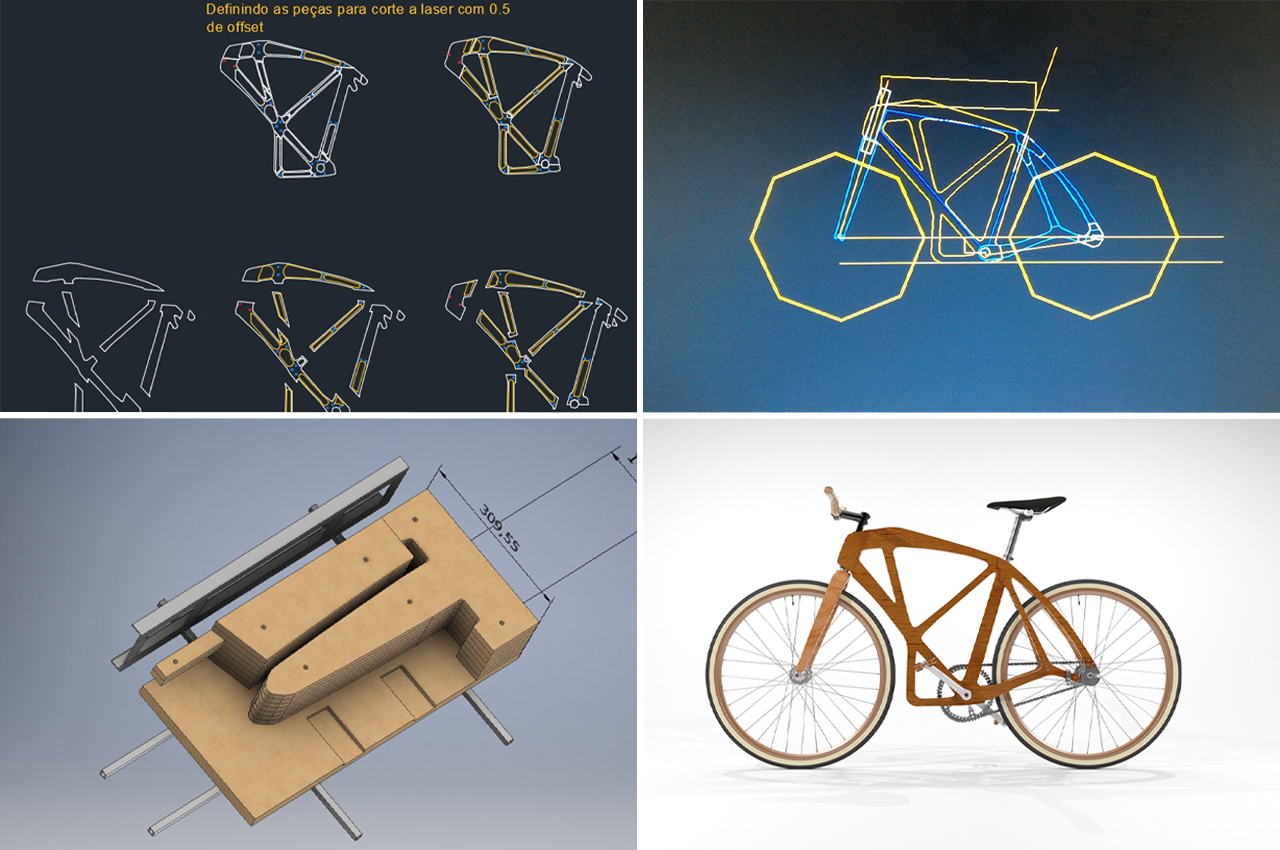
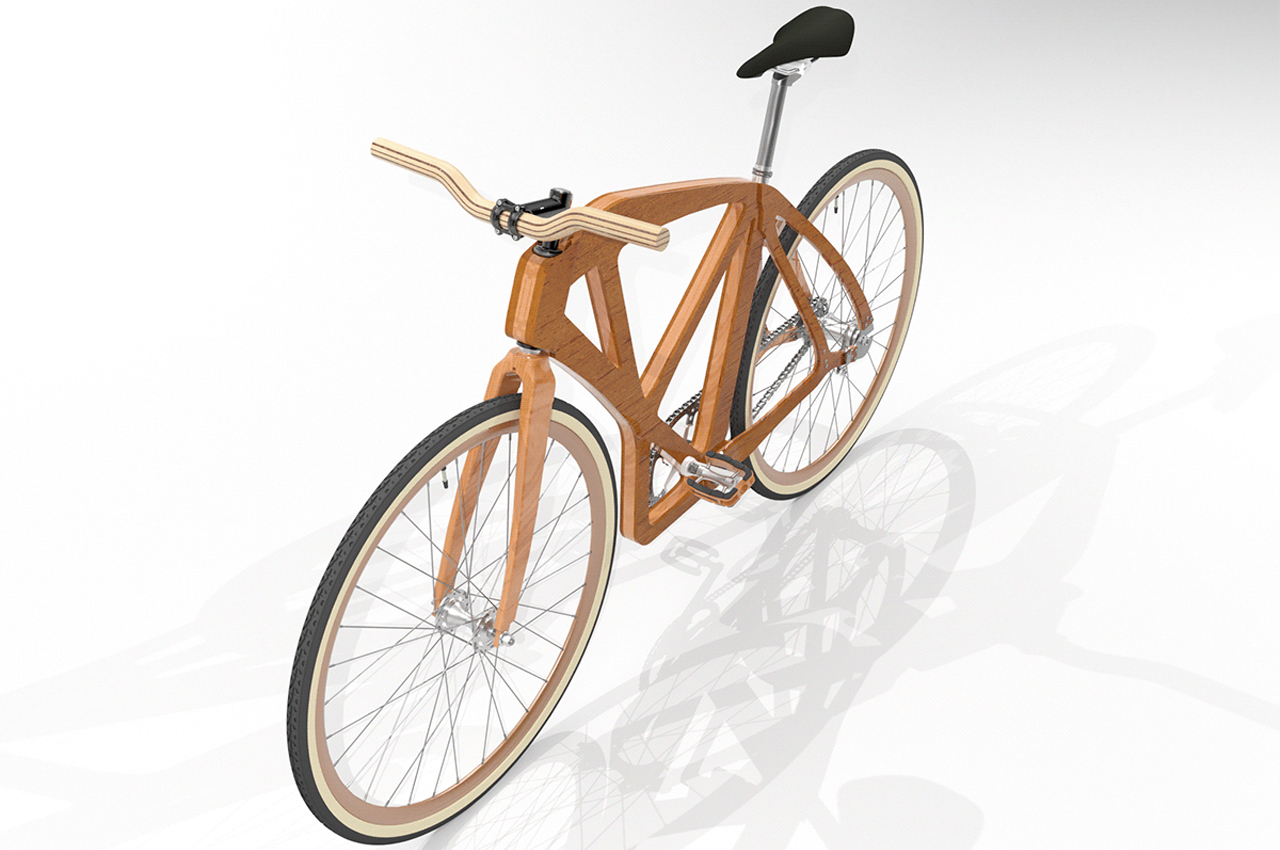
Made using plant resin to glue each part together, the natural fibers that make the Astan Bike are measured and fit using laser-cutting technology. To achieve a stronger build than aluminum bikes, Pella and Rutzen developed a patented frame that is strengthened by its lattice structural pattern.
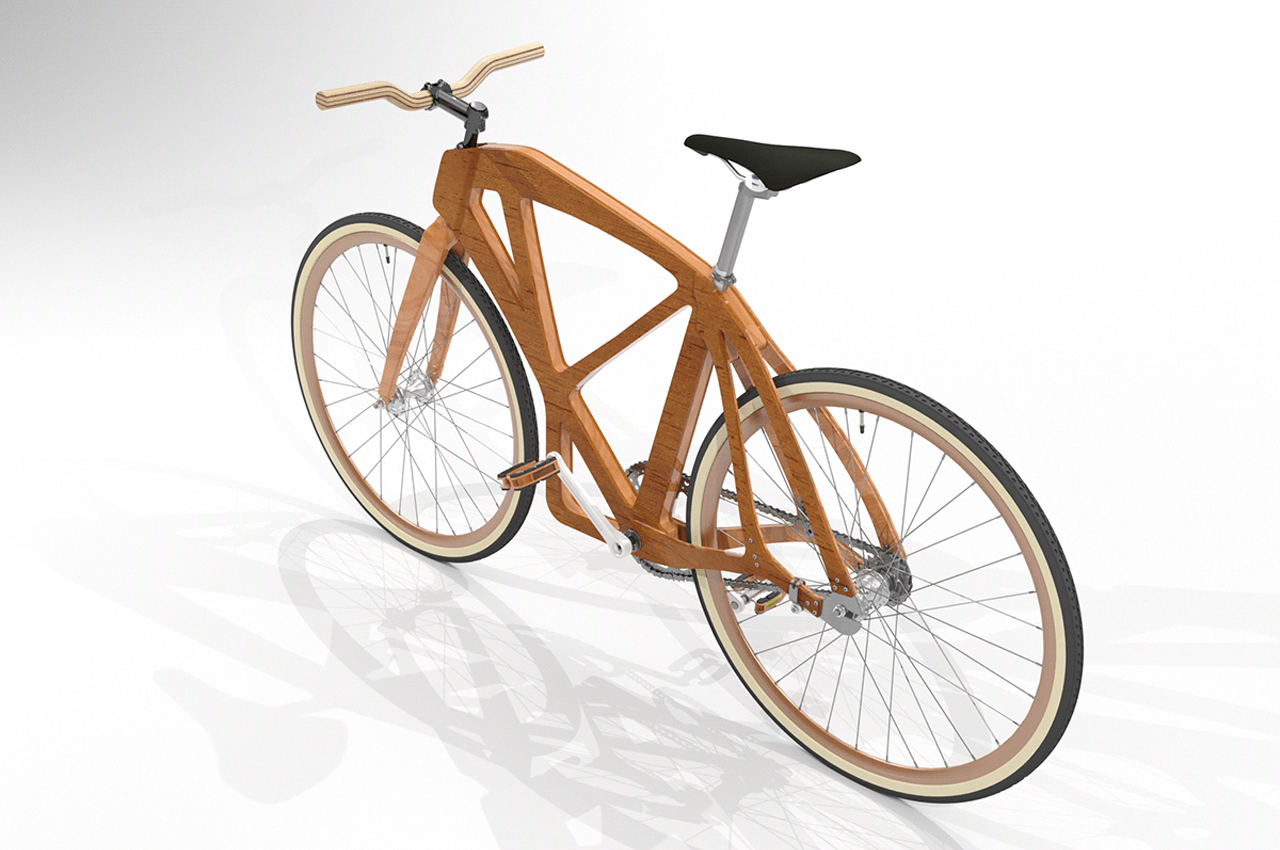
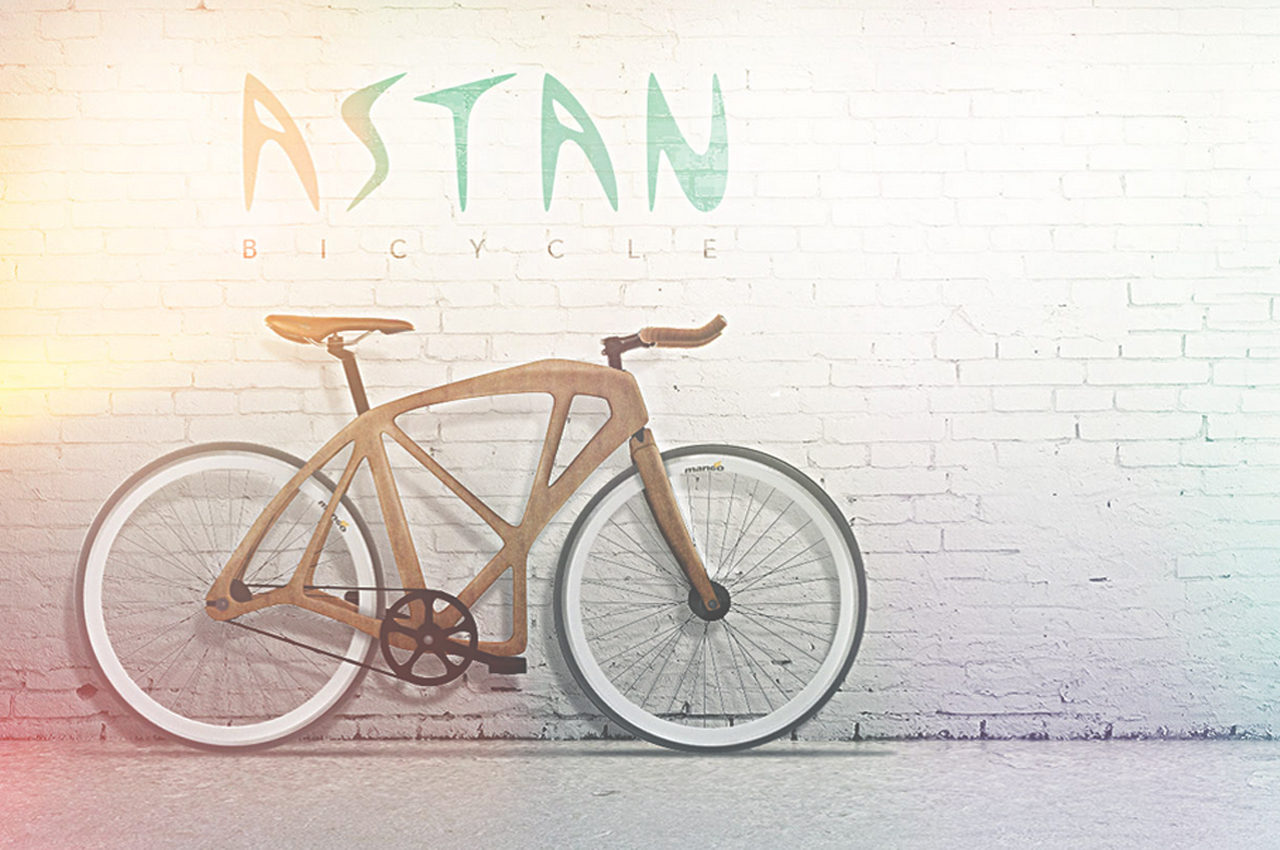
The lattice frame essentially follows the natural grain of the wood used to create each component of the bike, increasing the bike’s resistance. The lattice frame also allows the bike to absorb more impact and vibrations, which ultimately leads to an overall more comfortable ride.
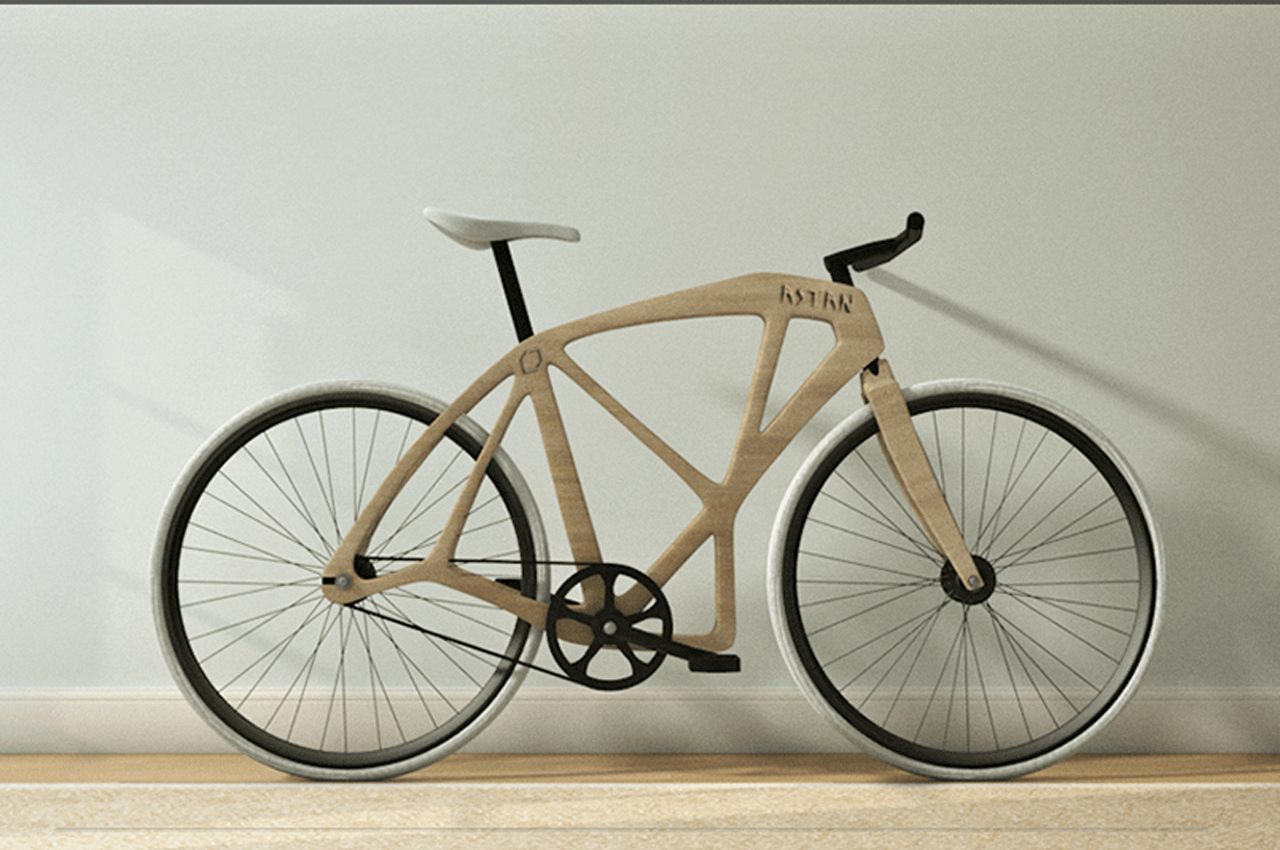
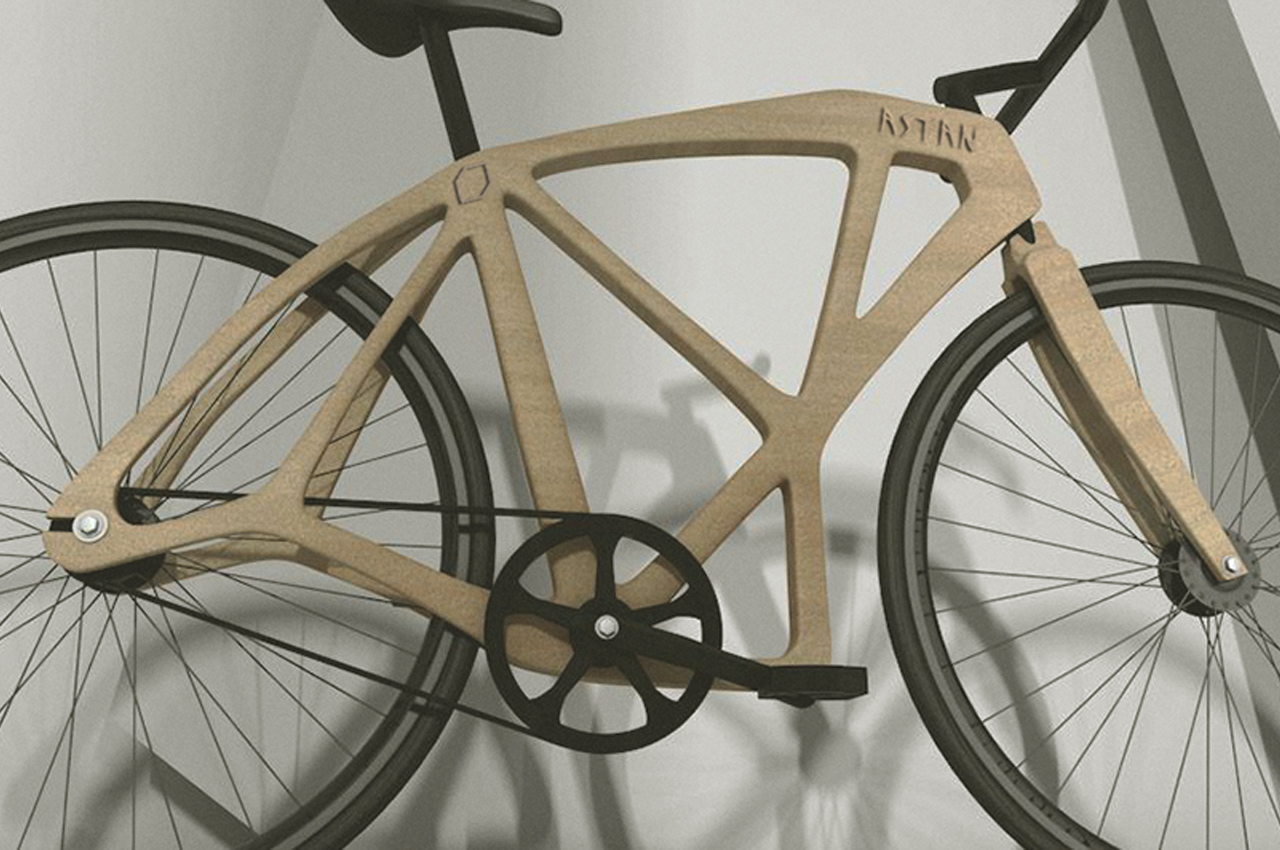
While the bike’s engineering aspect is certainly impressive, the finished look of Astan Bike’s wooden frame exudes sophistication and timelessness. Deciding on the look of Astan Bike’s frame brought Pella and Rutzen back to the bicycle’s roots. The asymmetrical pattern of Astan Bike’s chassis resembles the organic network of tree roots in ode to the natural fibers that entirely make up the bike’s build.
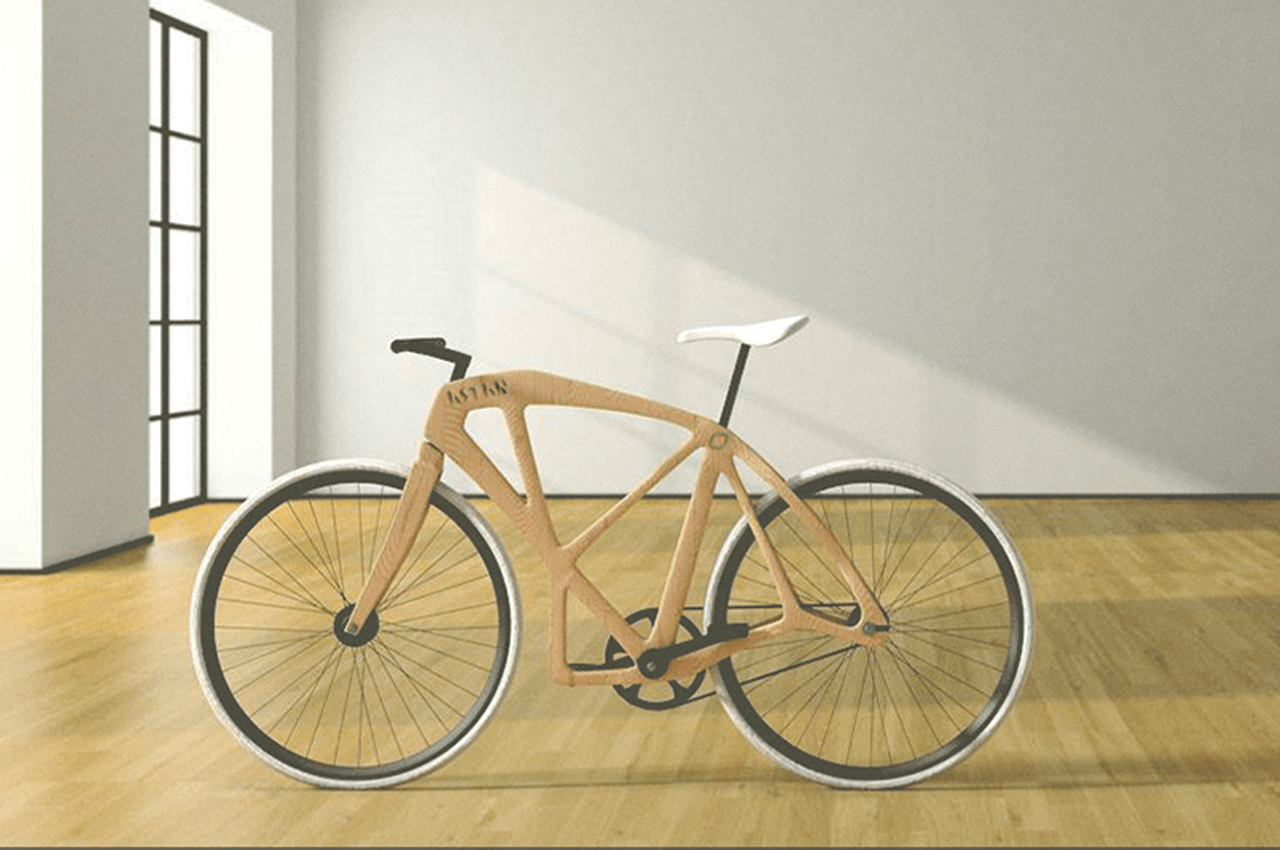
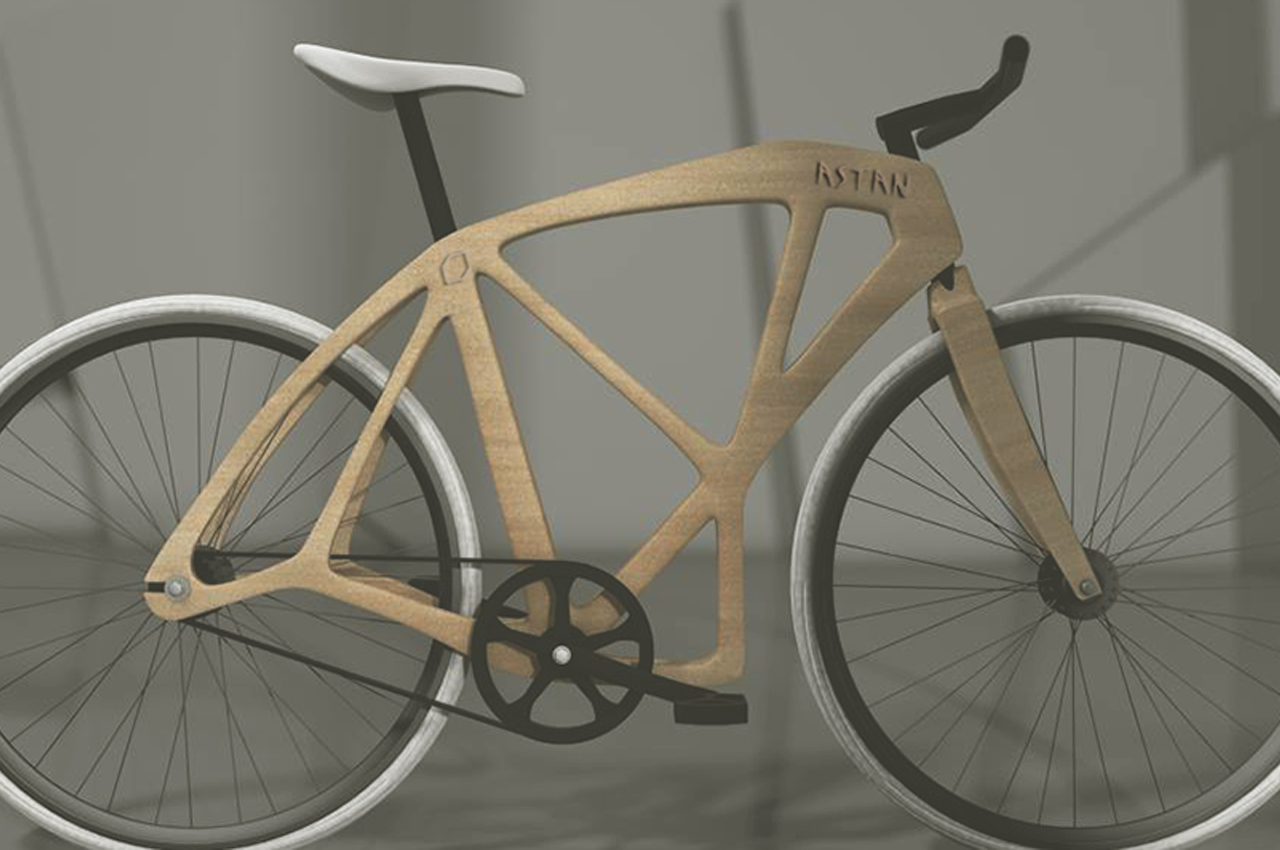
Honing in on the bike’s biomimetic design, Pella and Rutzen also wanted to mimic the look of butterfly wings through the bike frame’s triangular pattern. In weight, the Astan Bike also resembles a light butterfly, amounting to a feathery weight of only 4.5kg. Towards the rear of the bike, two narrow triangles are also meant to emulate the look of human lungs.
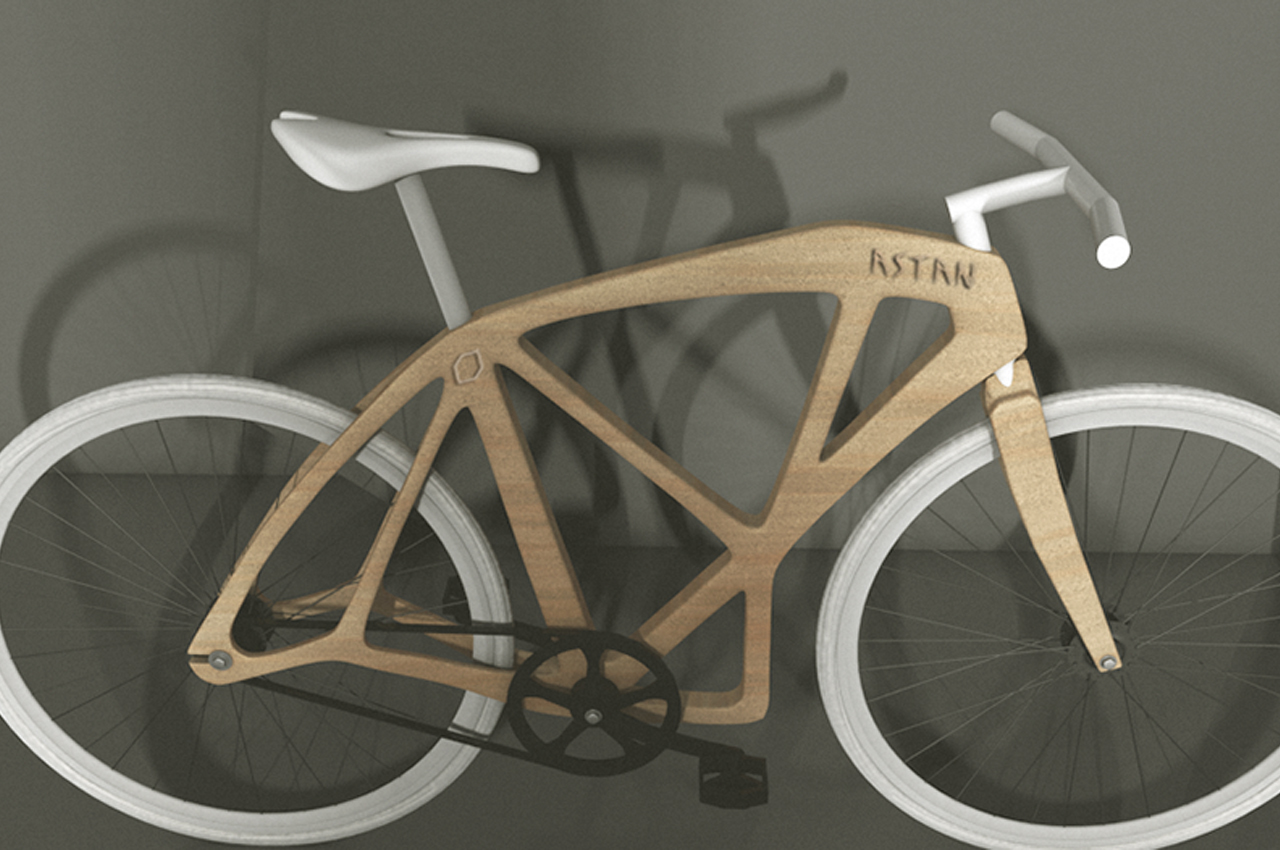
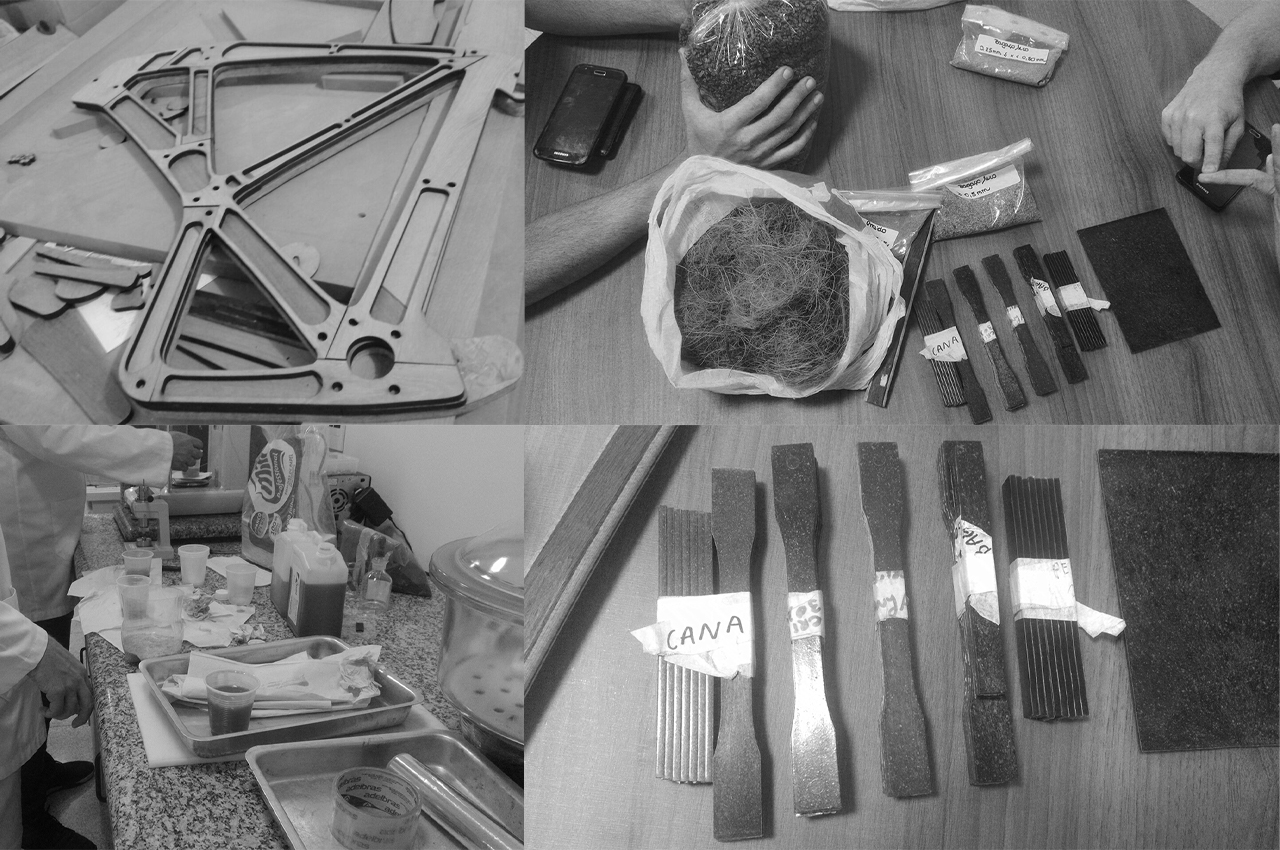
Handing off the first prototype to leave Brazil, famed British architect Sir Norman Foster received the first Astan Bike from Pella and Rutzen. Known for his innovative, modernist designs of steel and glass, Foster is a key figure in the modern movement towards space management.
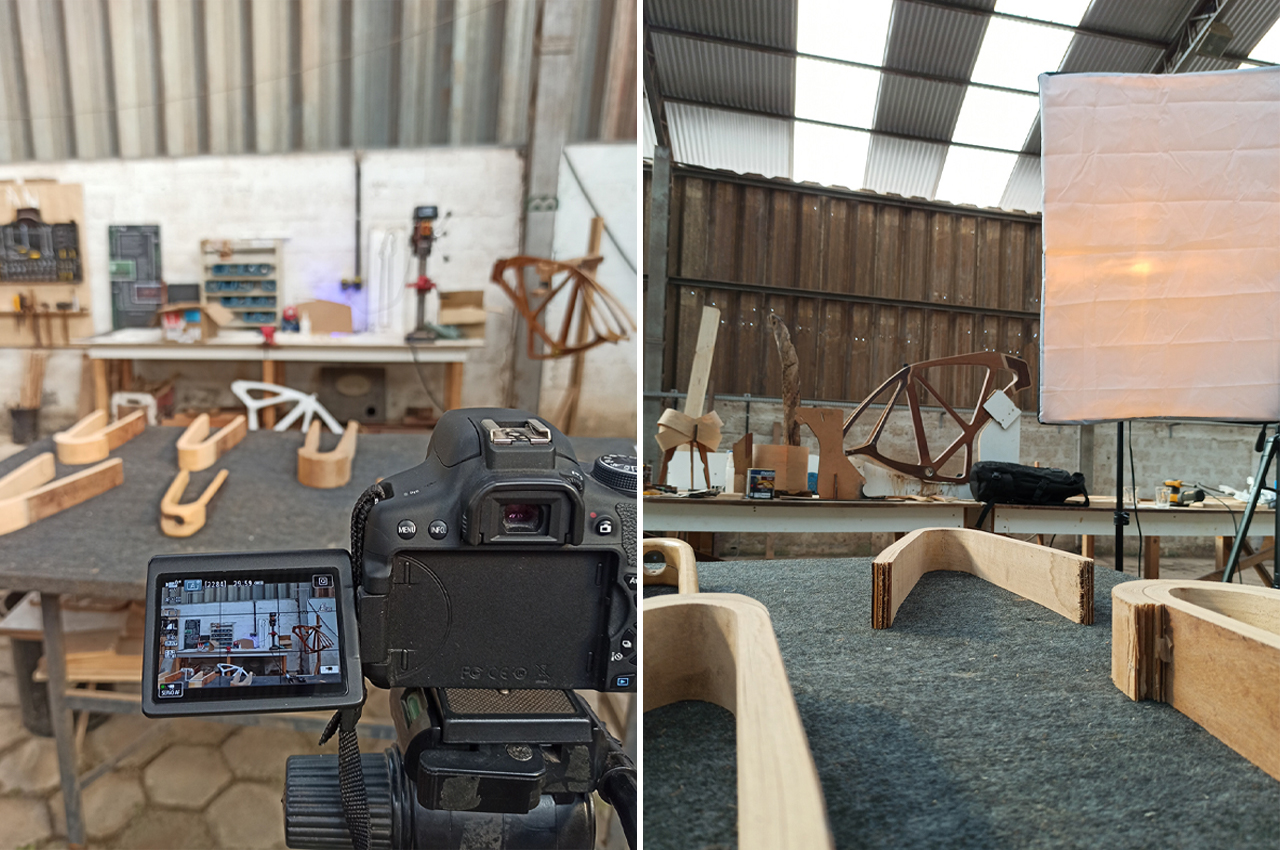
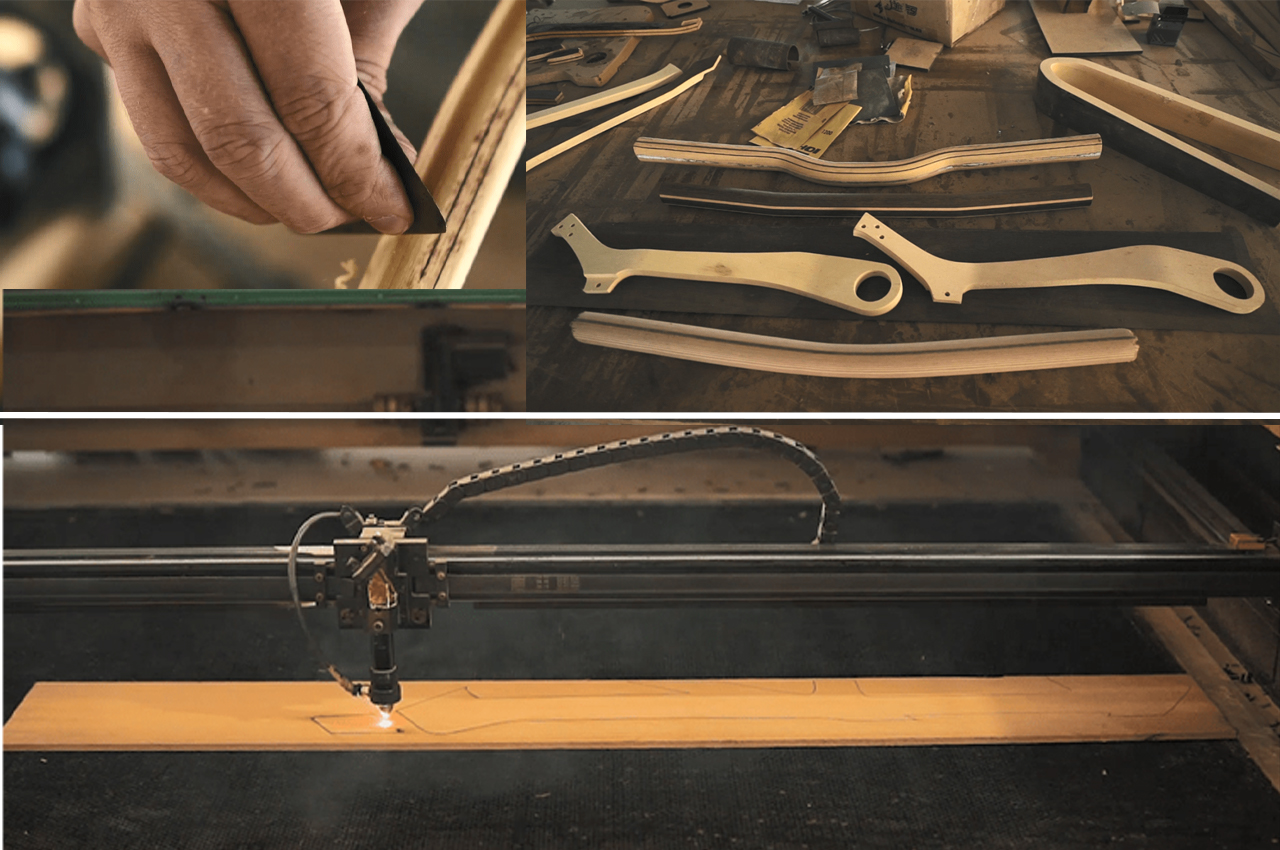
It seems fitting that Pella and Rutzen gifted Foster with the sustainable bike as they explain, “According to researchers from universities in Santa Catarina in Brazil, and São Carlos in São Paulo, ASTAN proved to be a 95% more sustainable production process than aluminum and carbon fiber.”
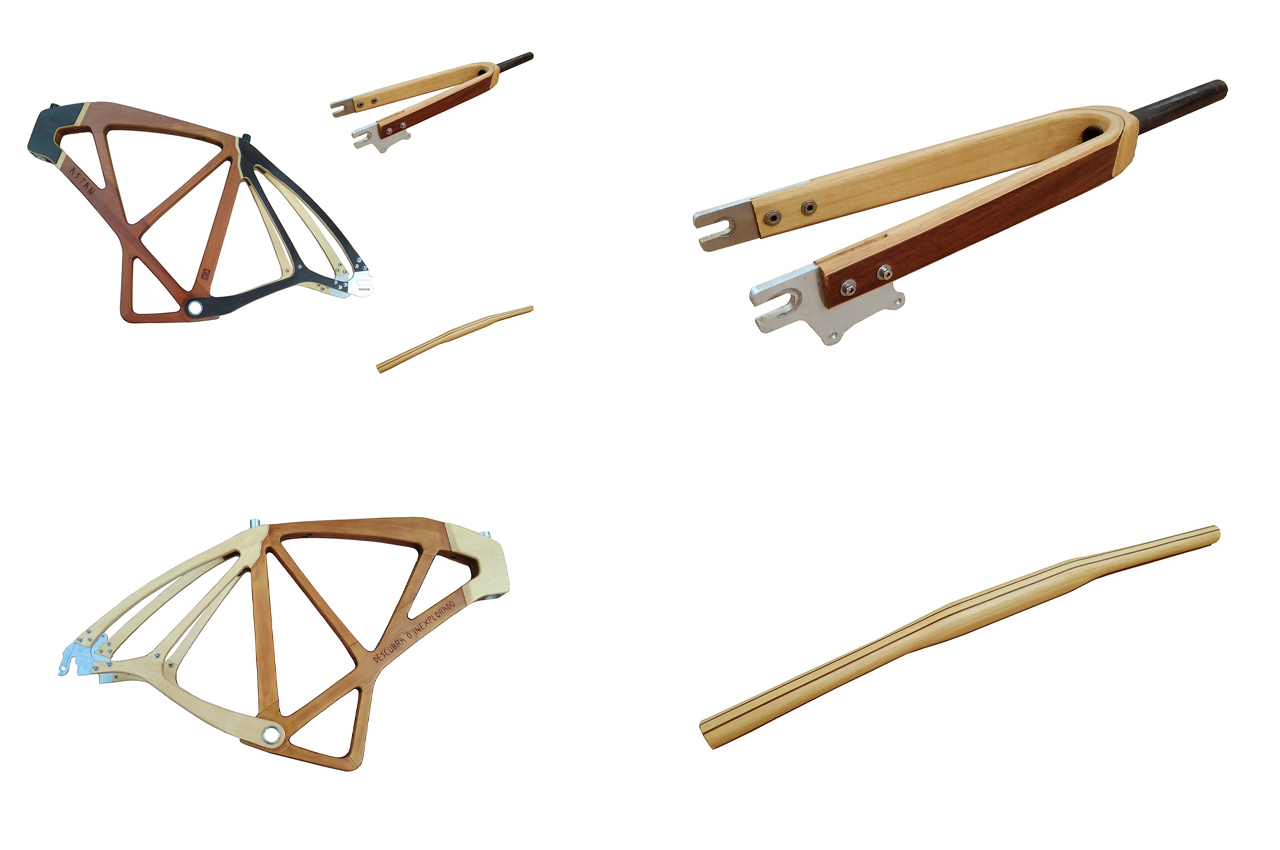
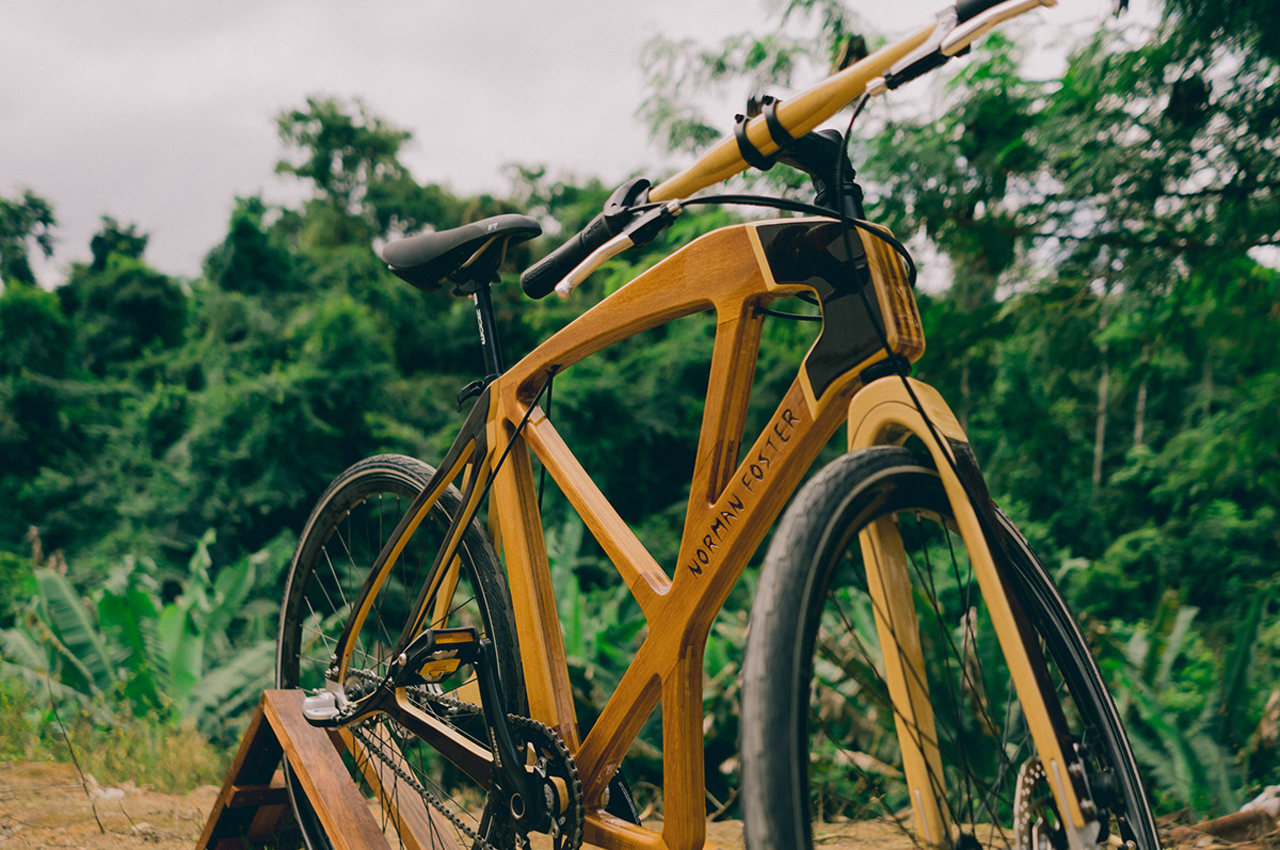
Famed English architect Sir Norman Foster was gifted the first Astan Bike to leave Brazil.
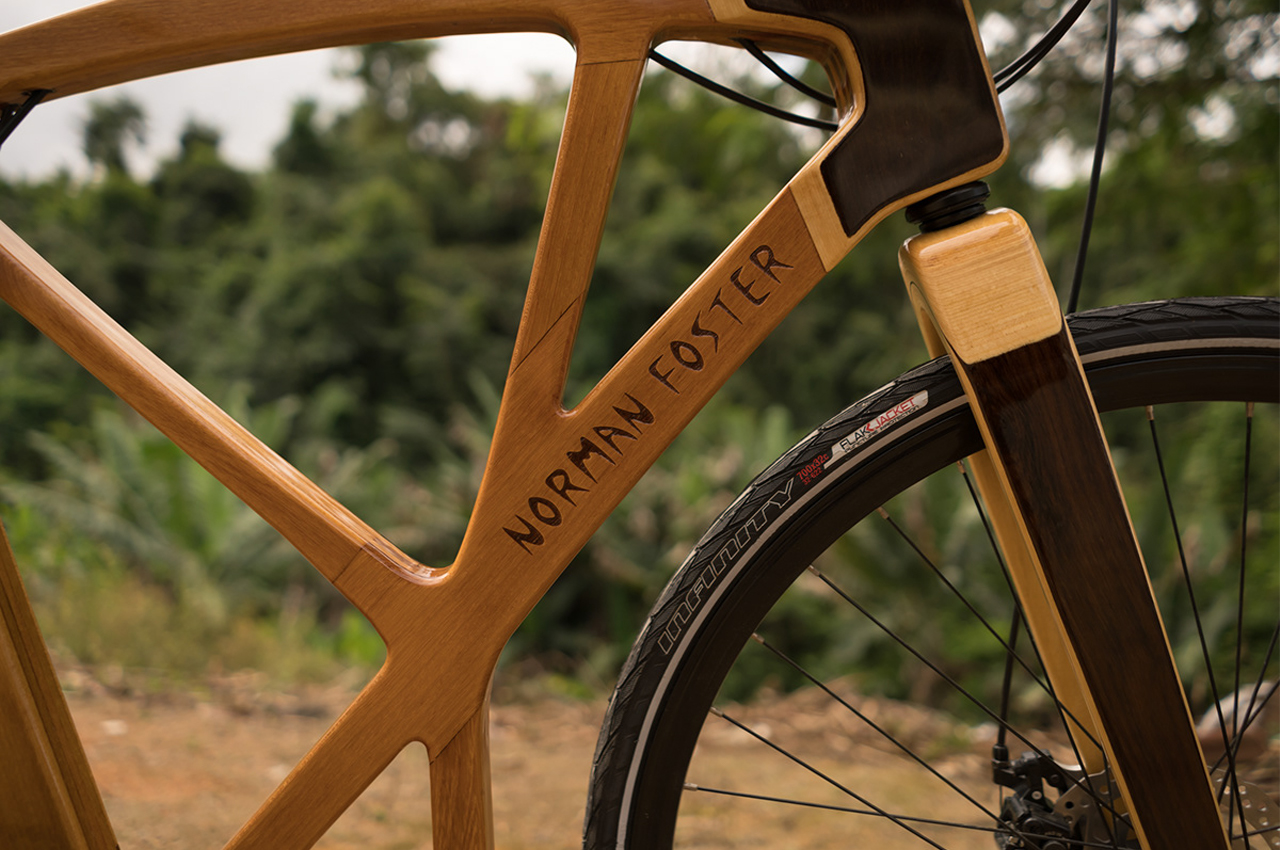
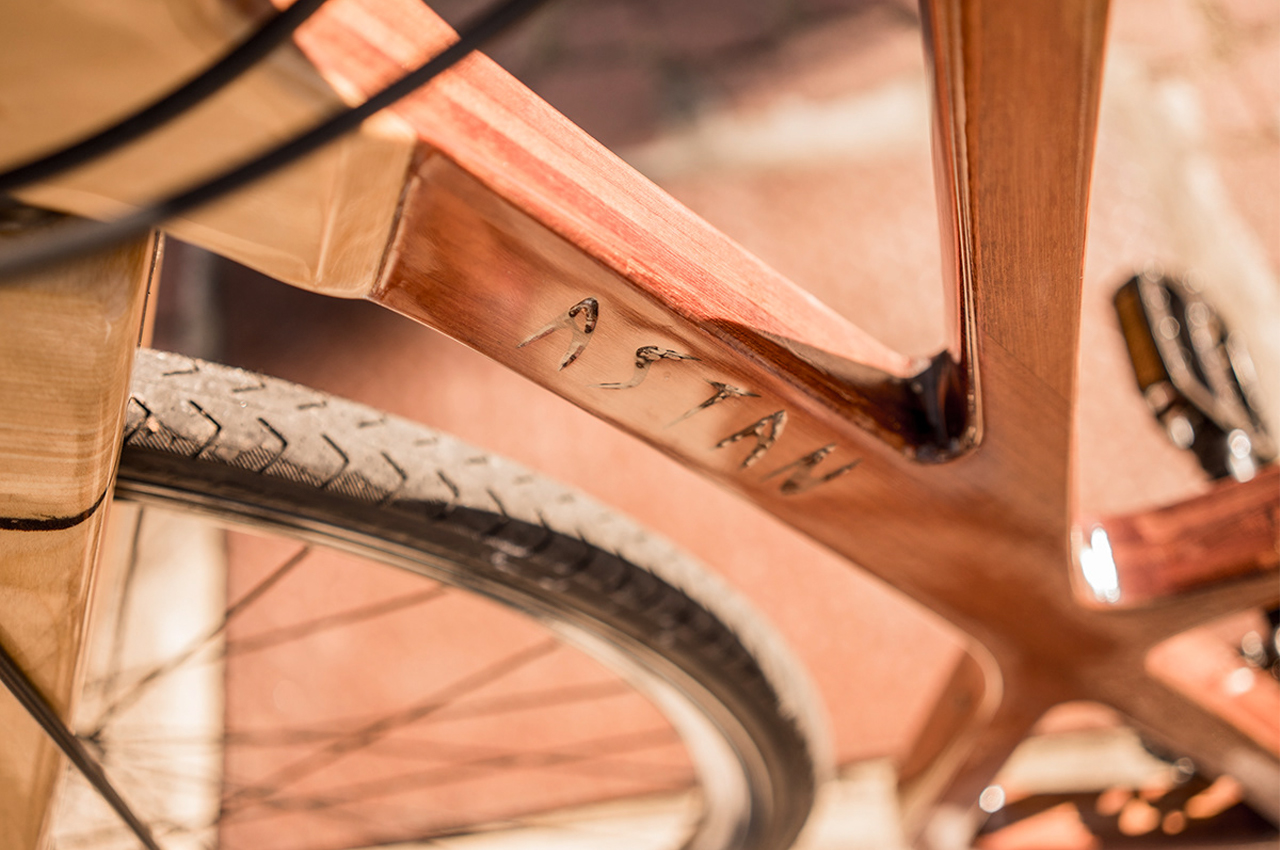
The natural grain of the wood gives the bike a unique look.
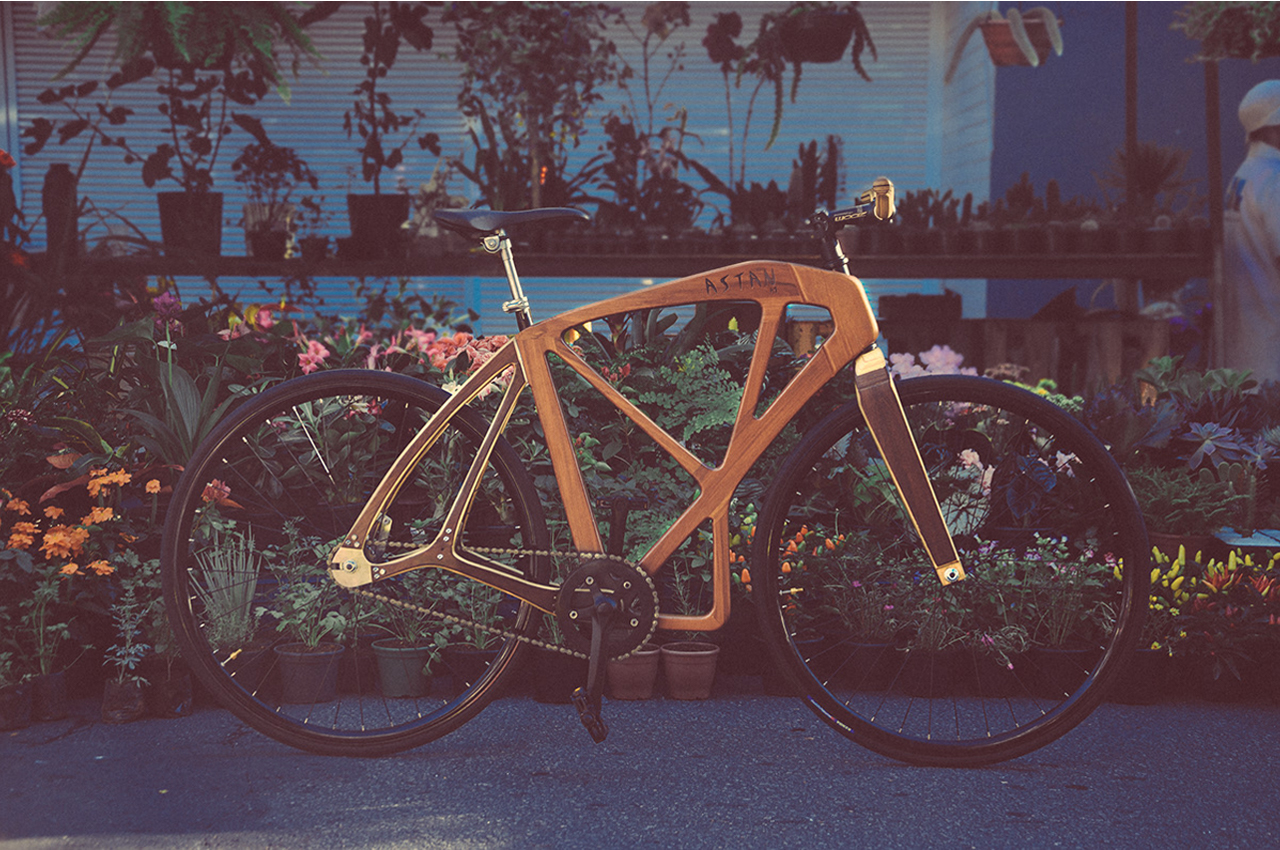
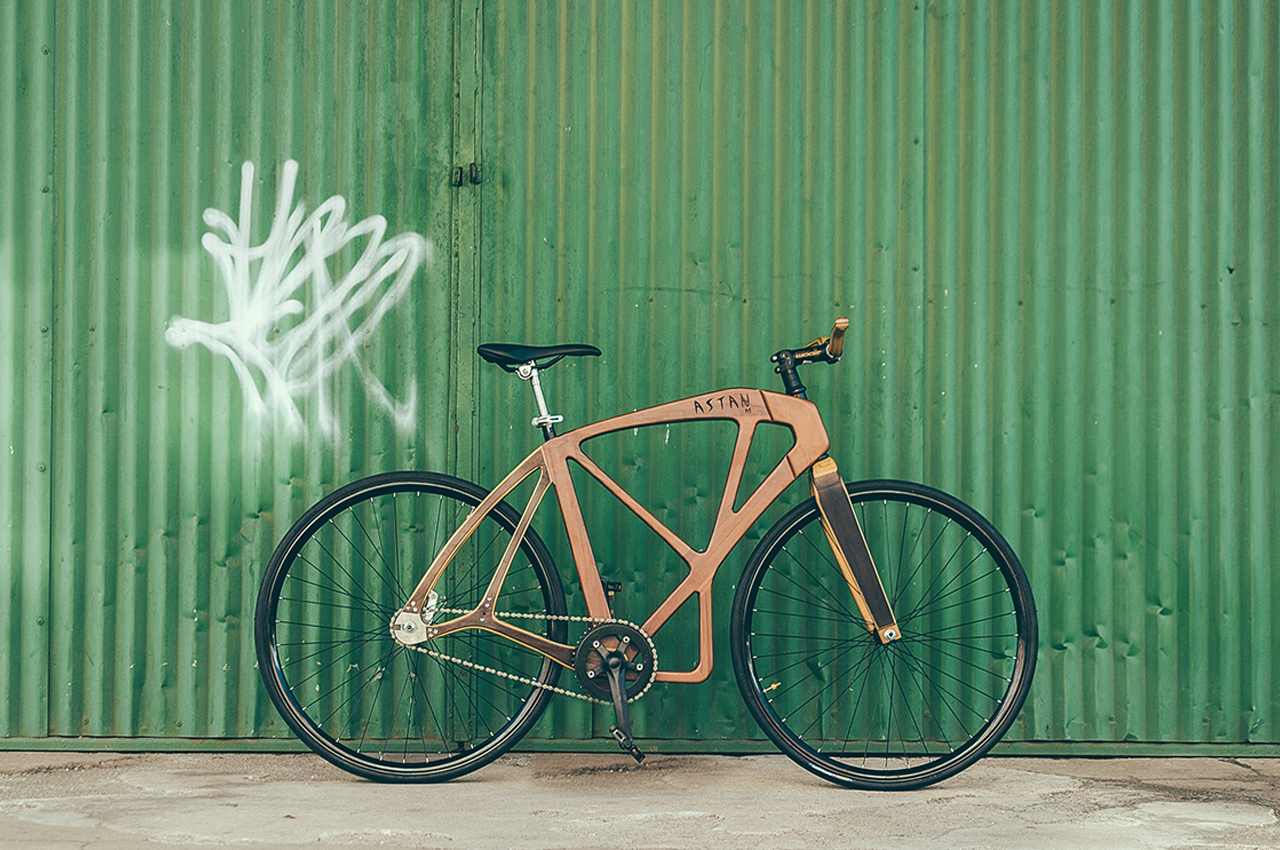
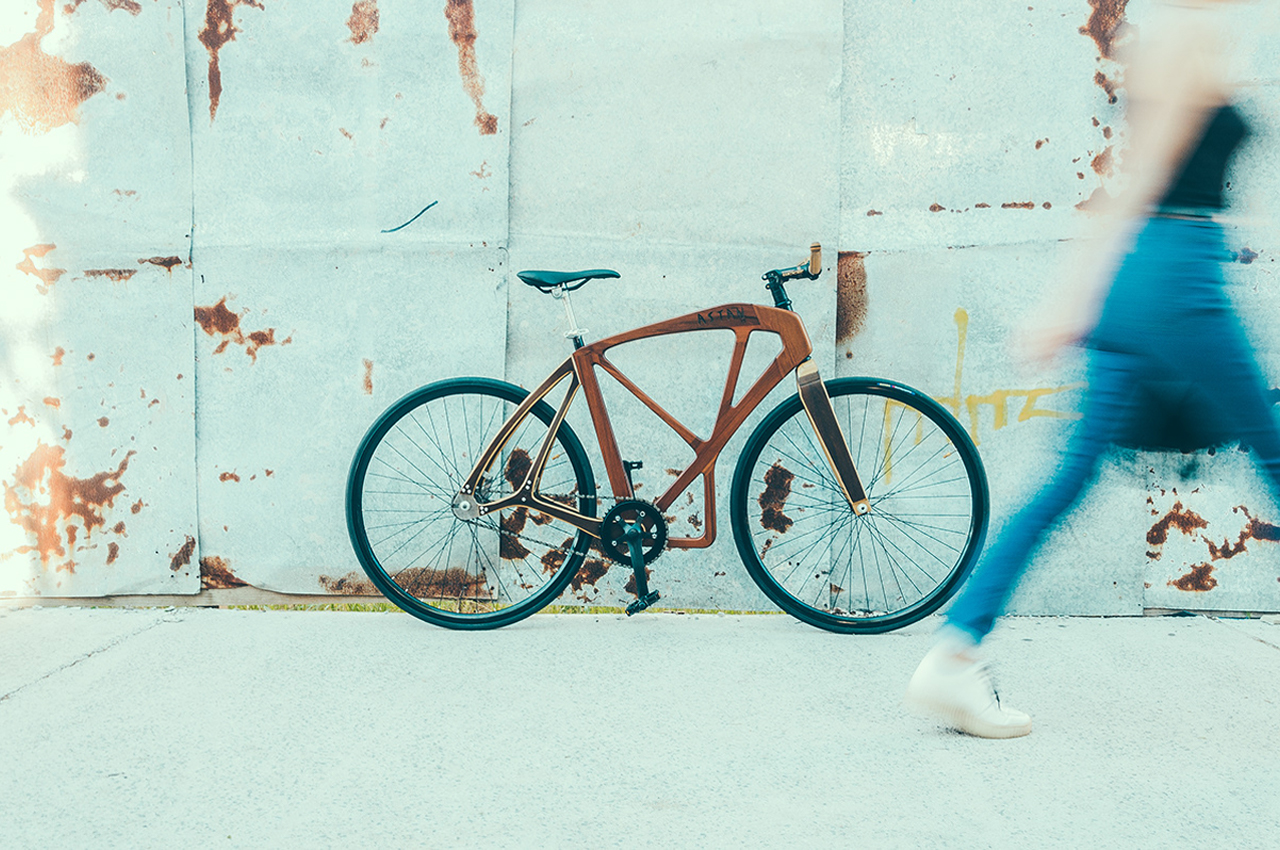
Different gradients of wood give Astan Bike a different look from each side.
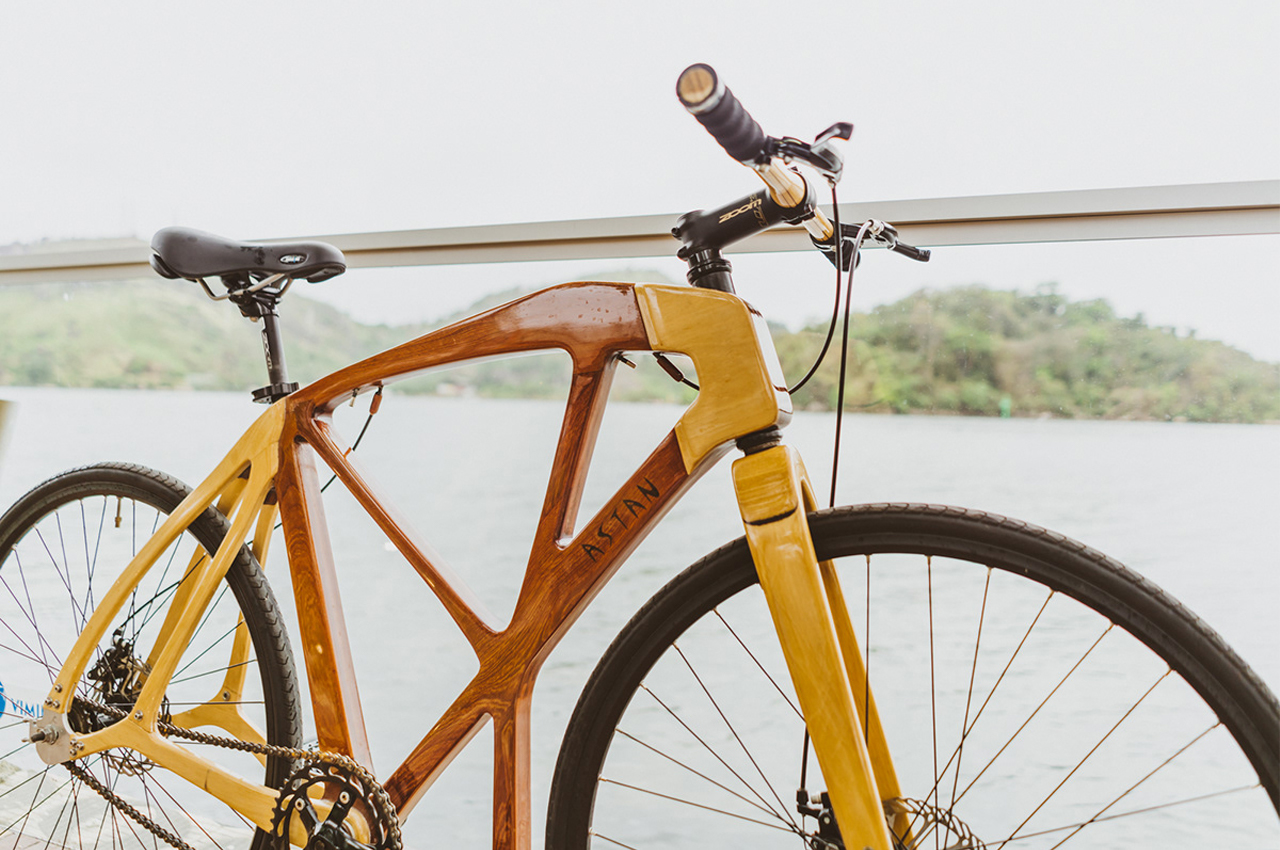
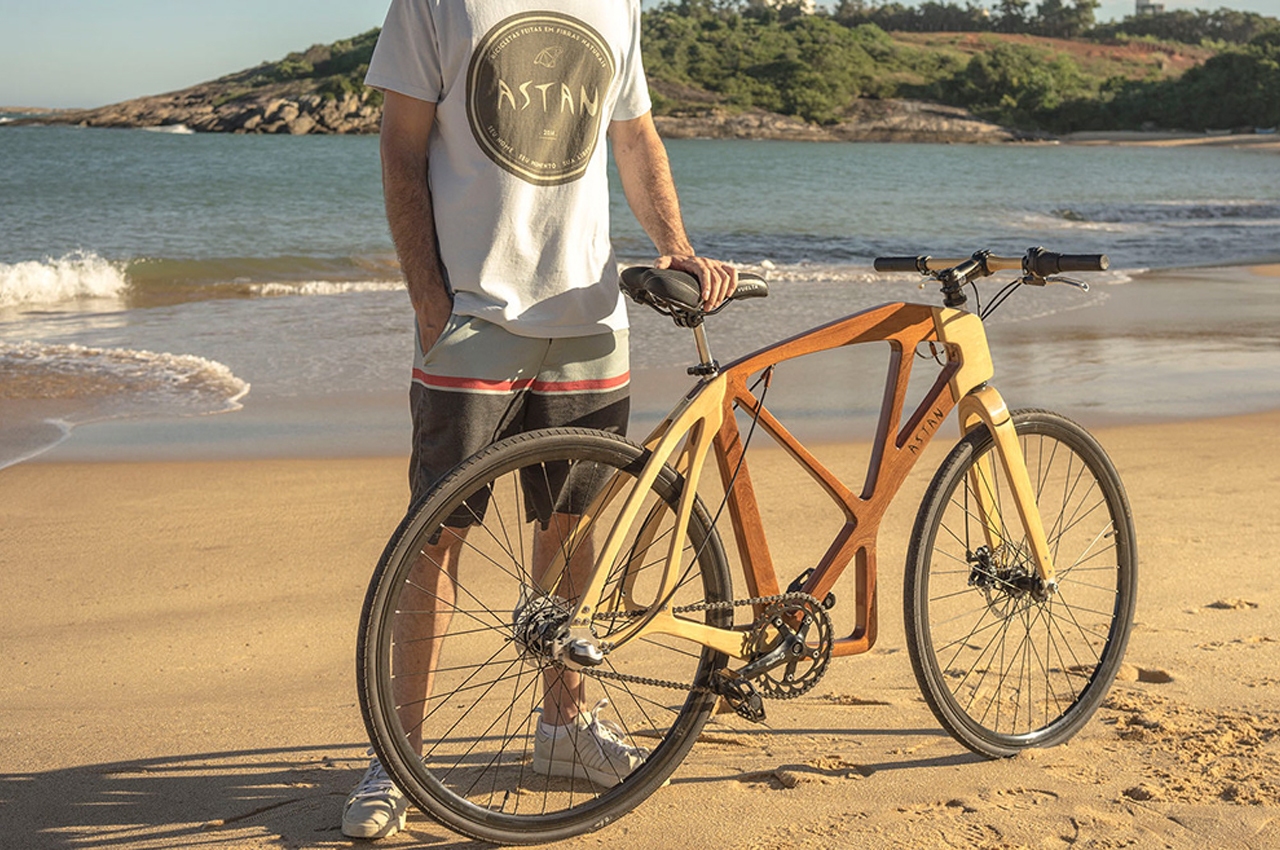
The Astan Bike can be taken on any commute, from the pavement to the sand.
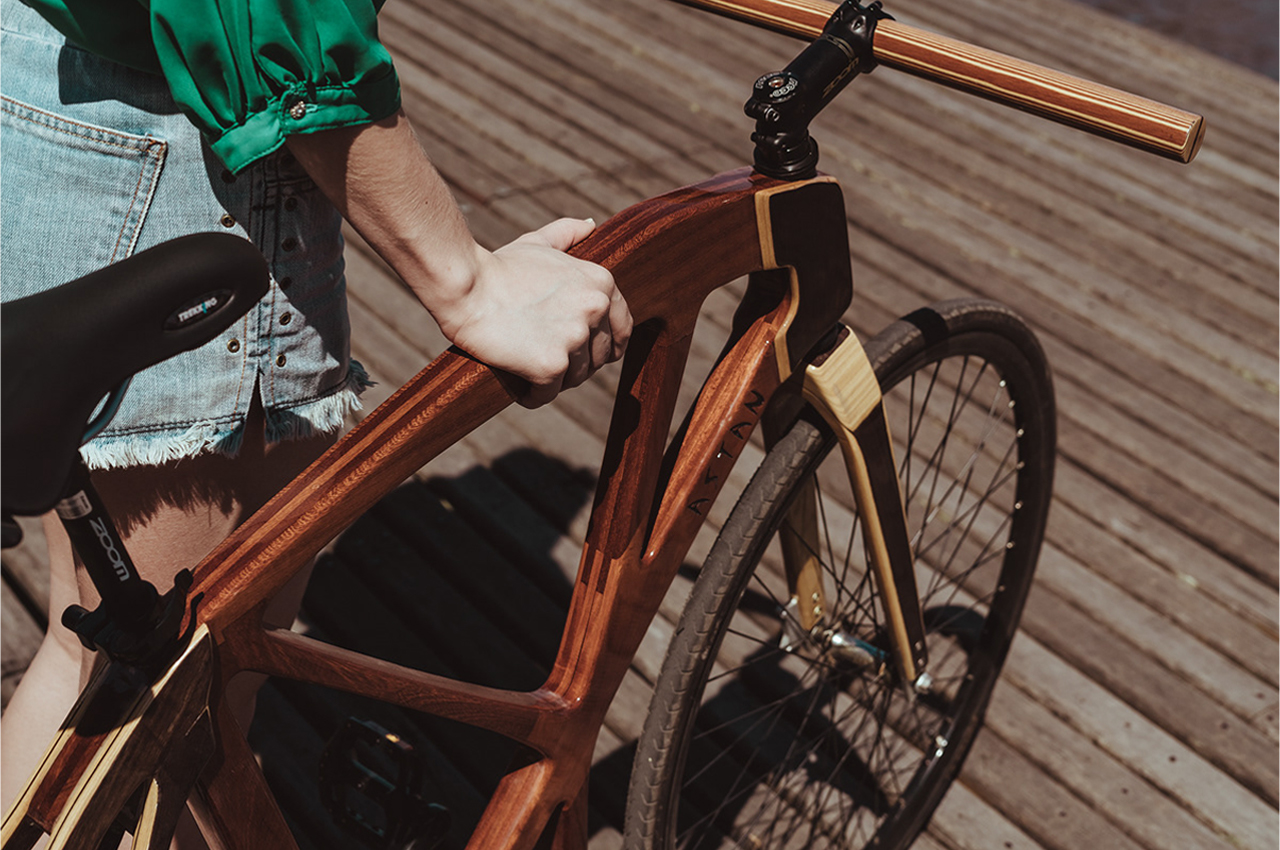
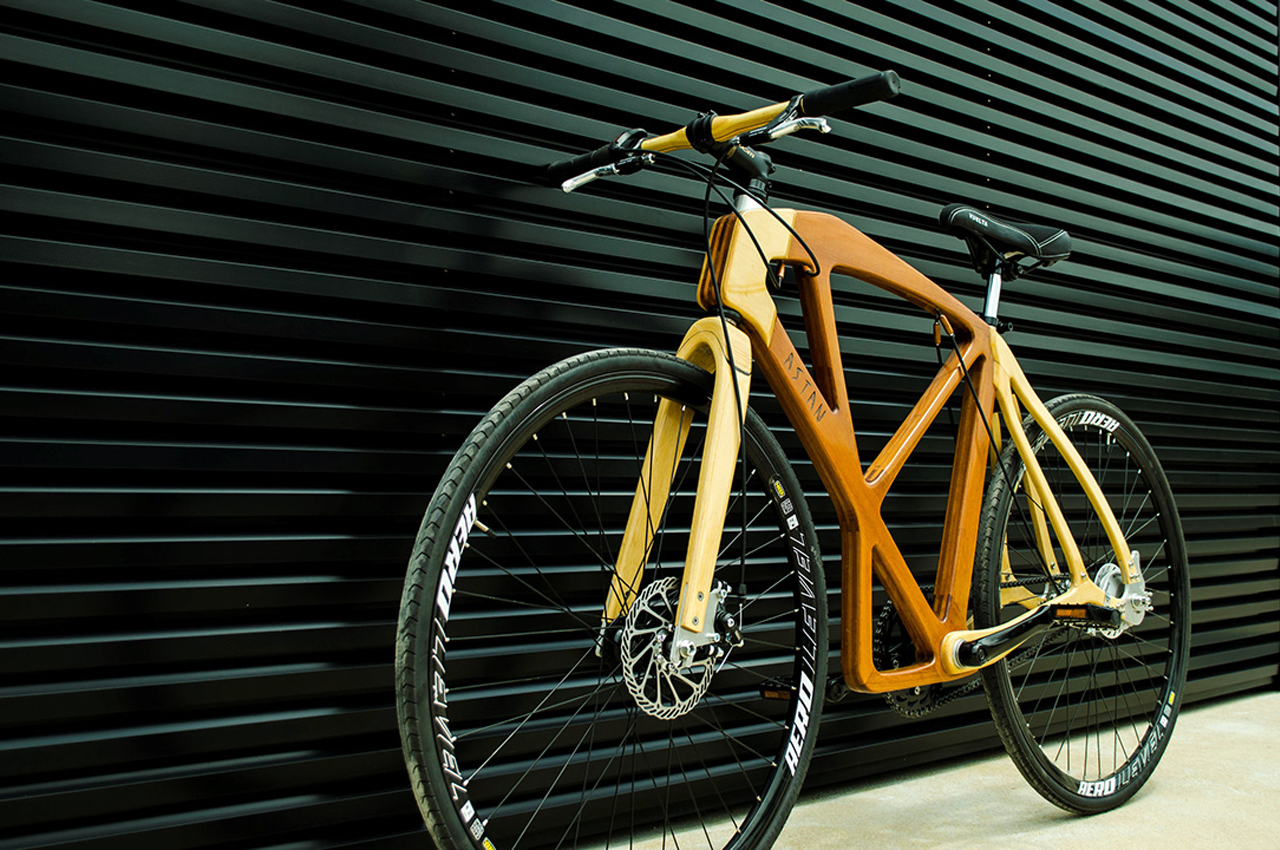
Lightweight and stronger than an aluminum frame, the Astan Bike is entirely made from natural plant fibers.


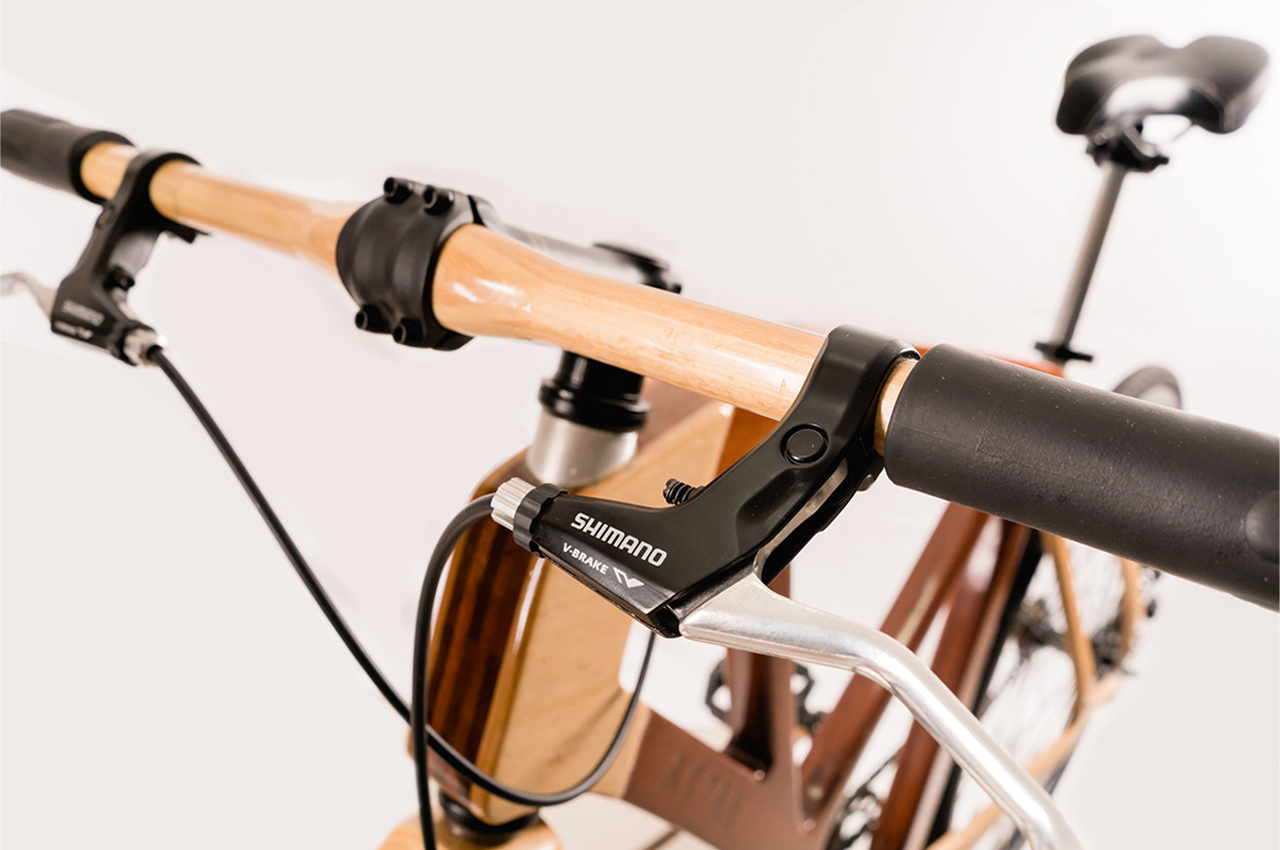
Reliable metal ware is integrated into the build of the Astan Bike to ensure a smooth, safe ride.
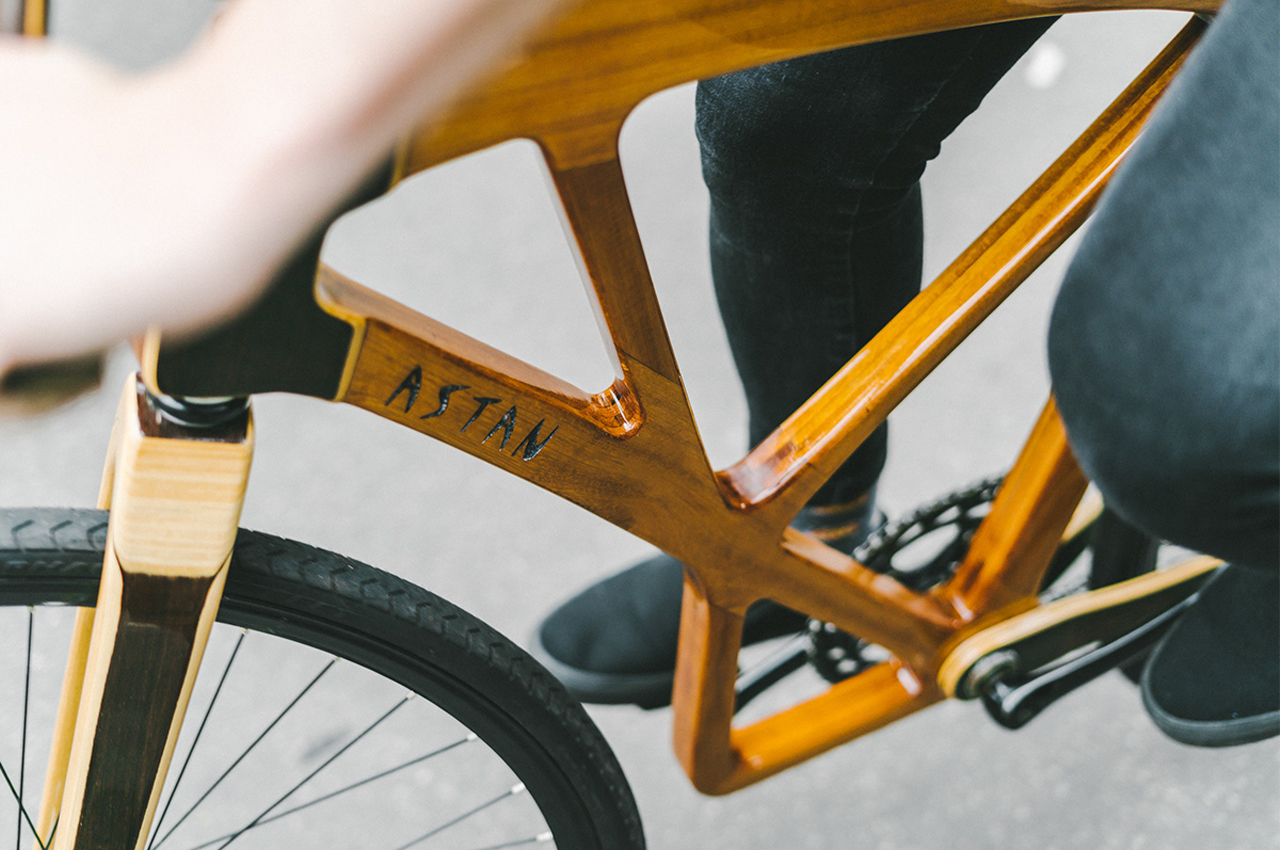
The Astan Bike is also built to absorb more pressure than aluminum bikes, leading to a more comfortable ride.
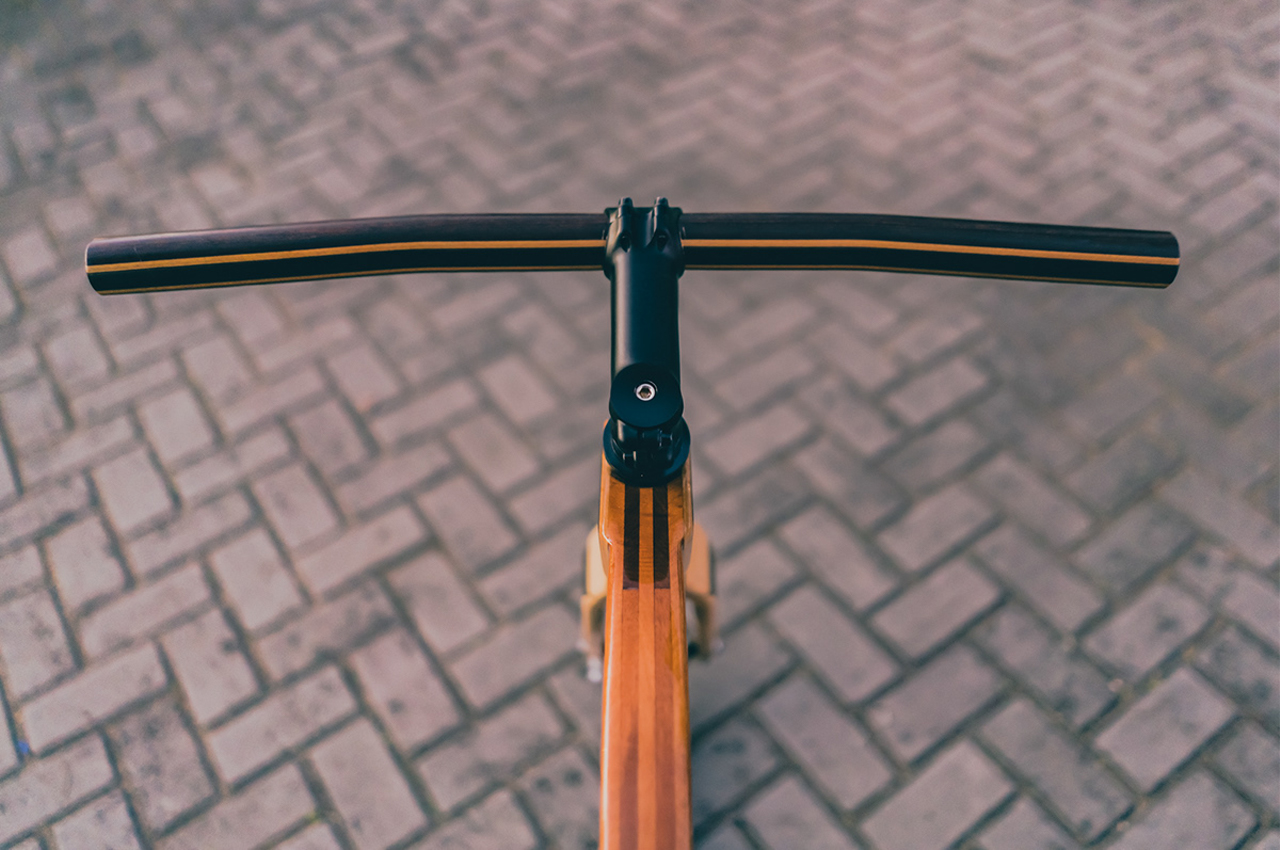
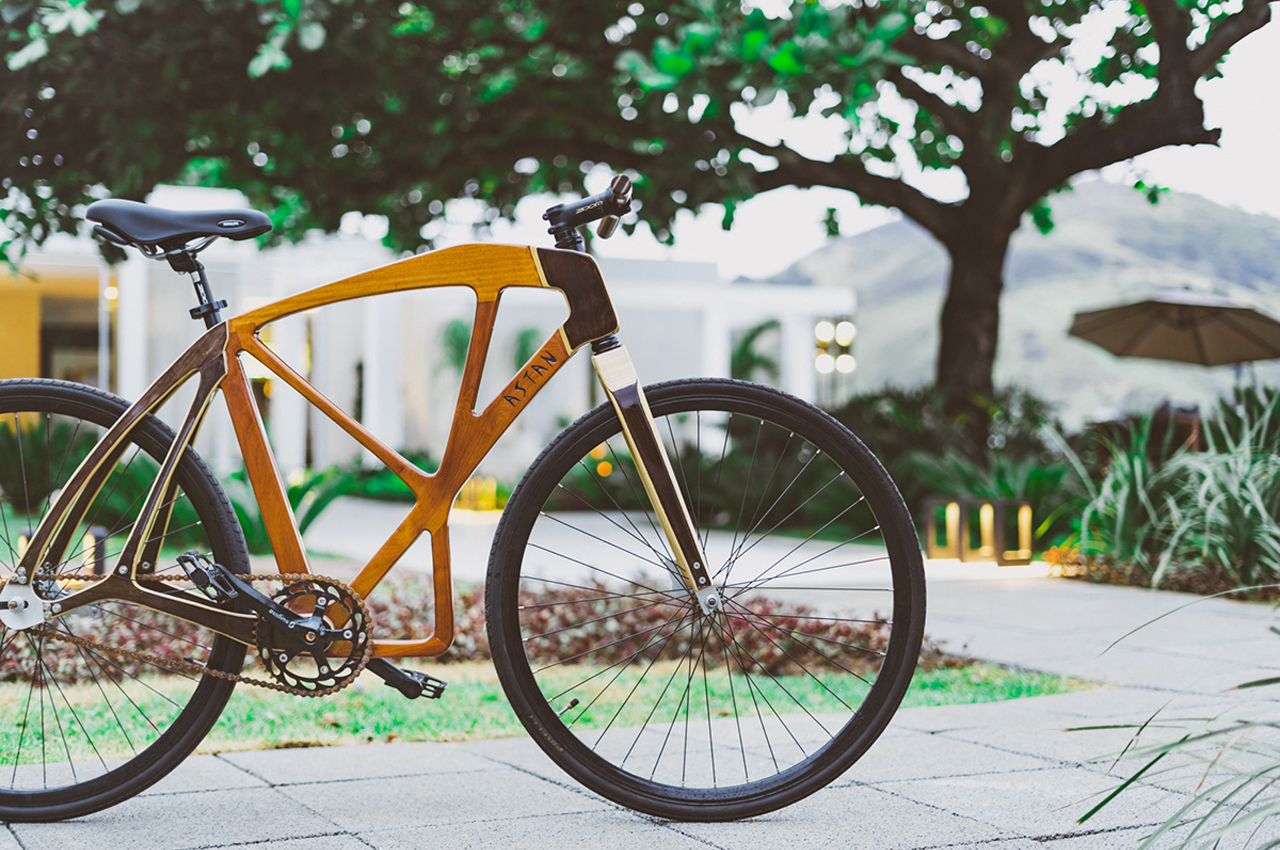
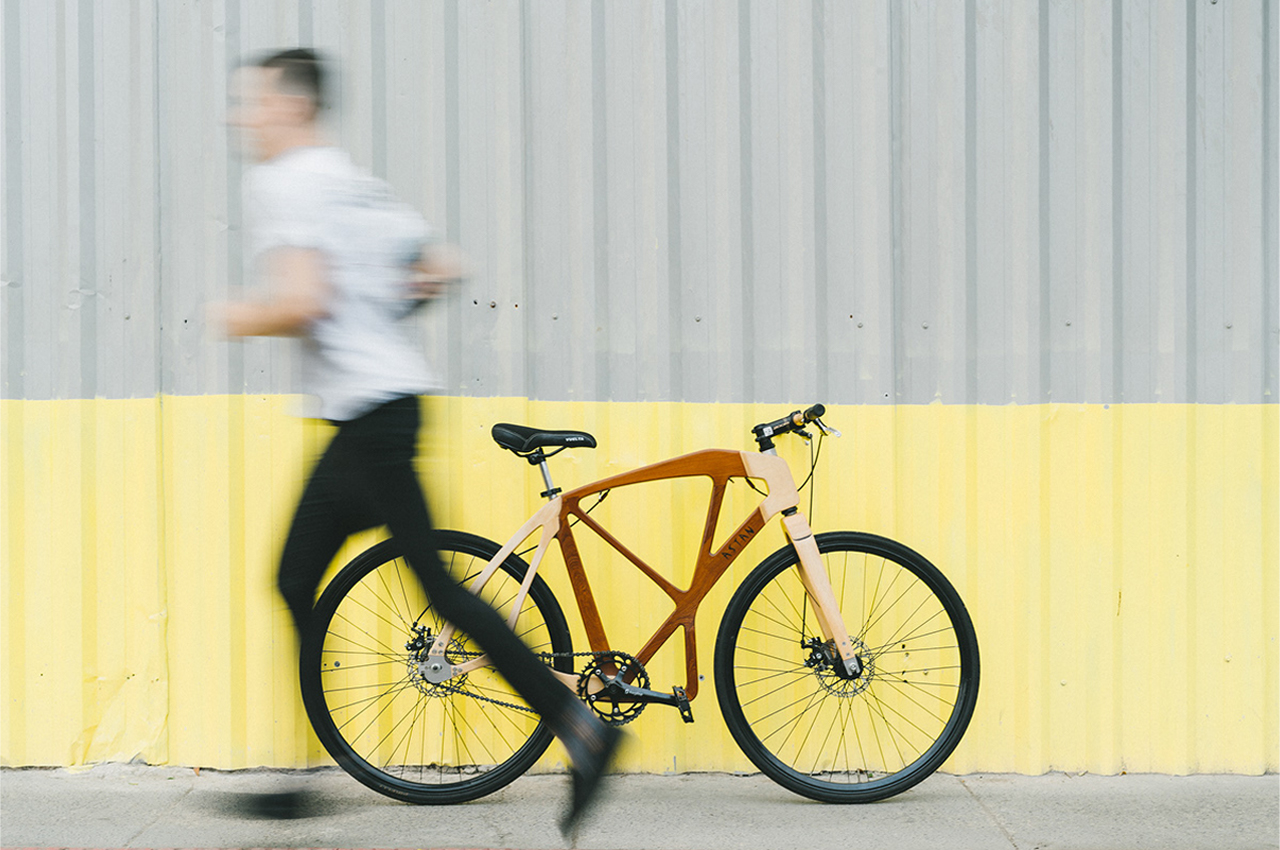
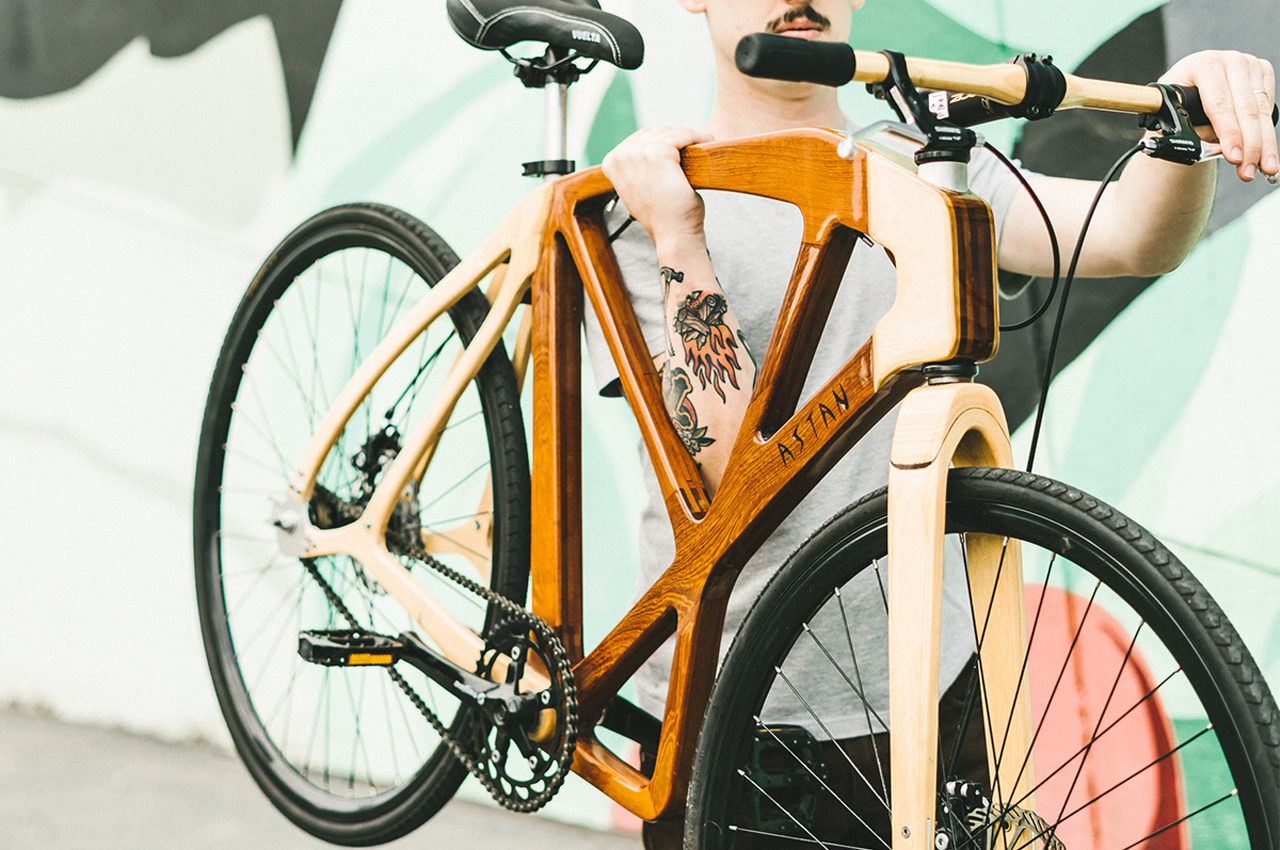

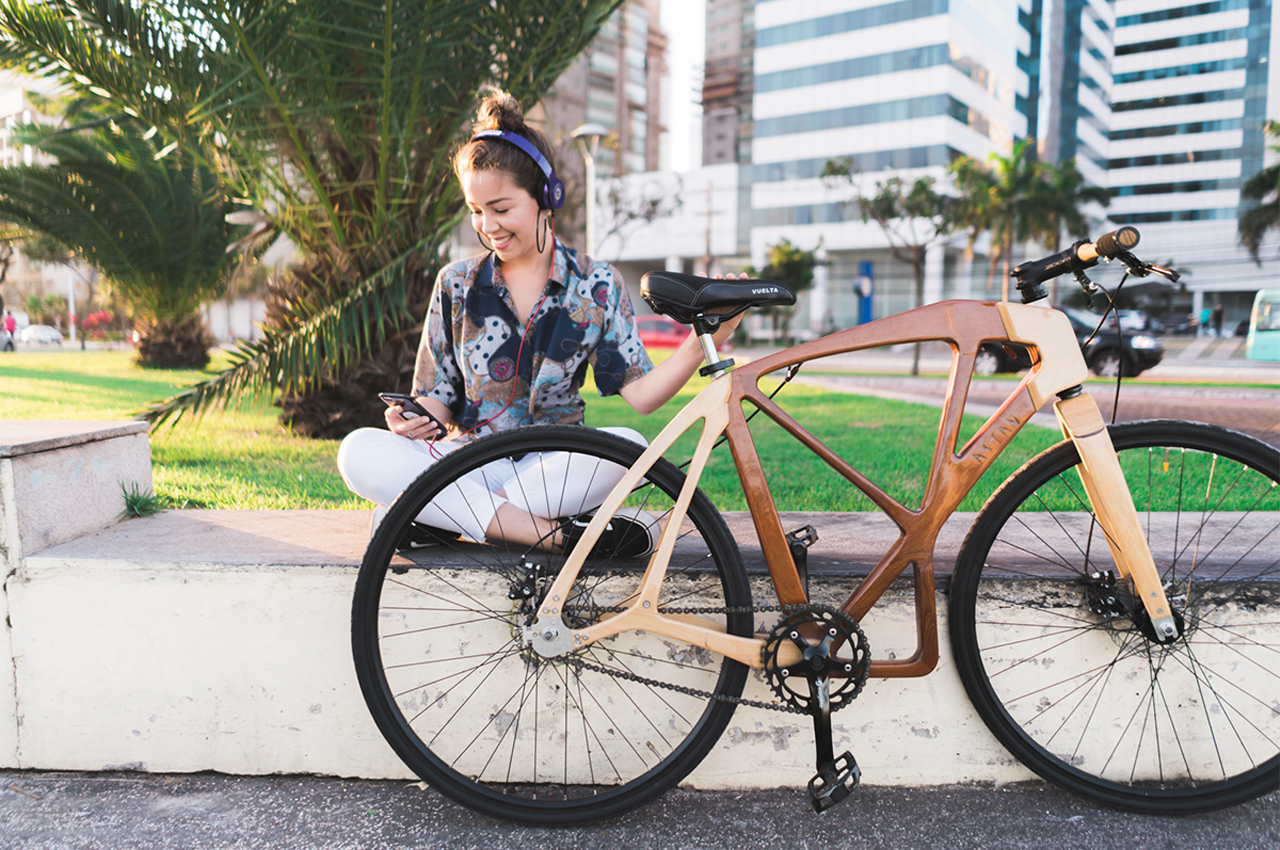
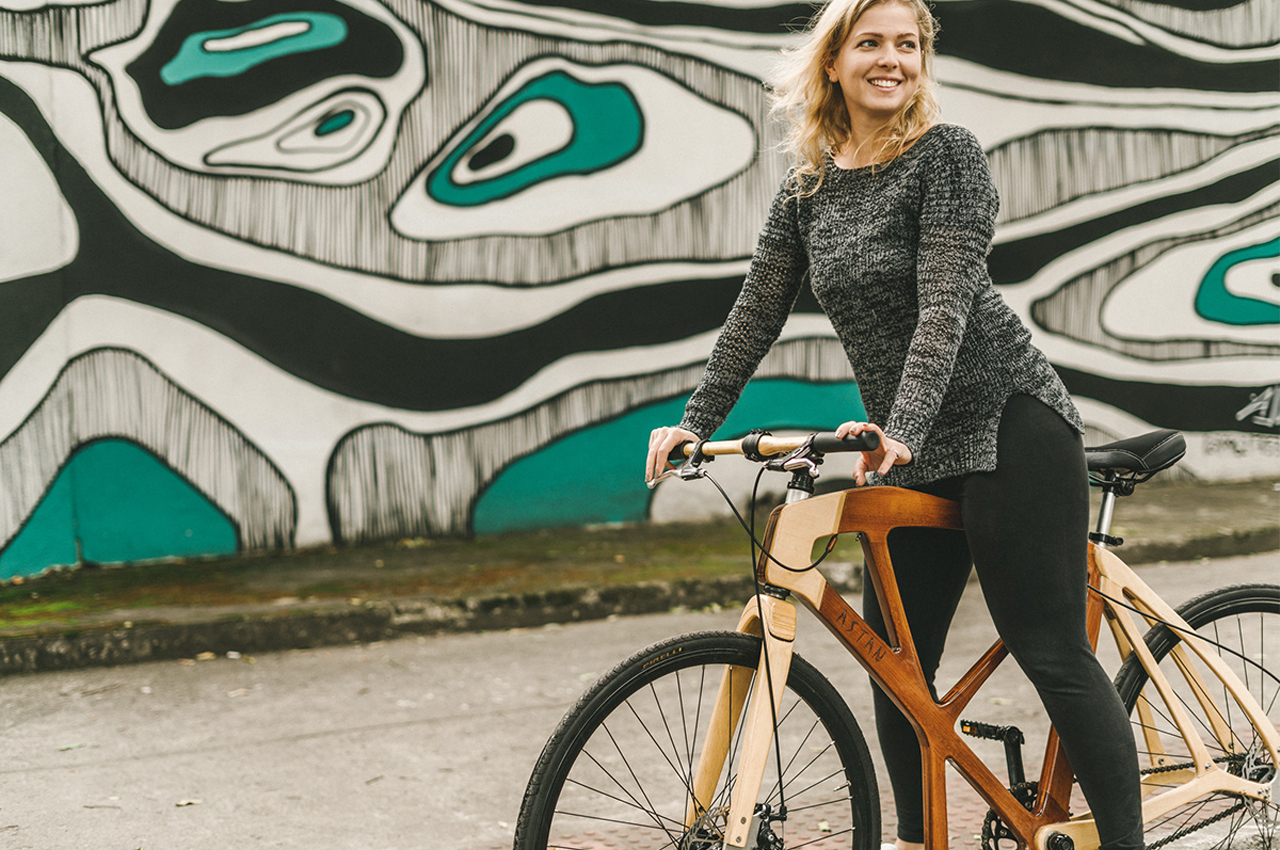

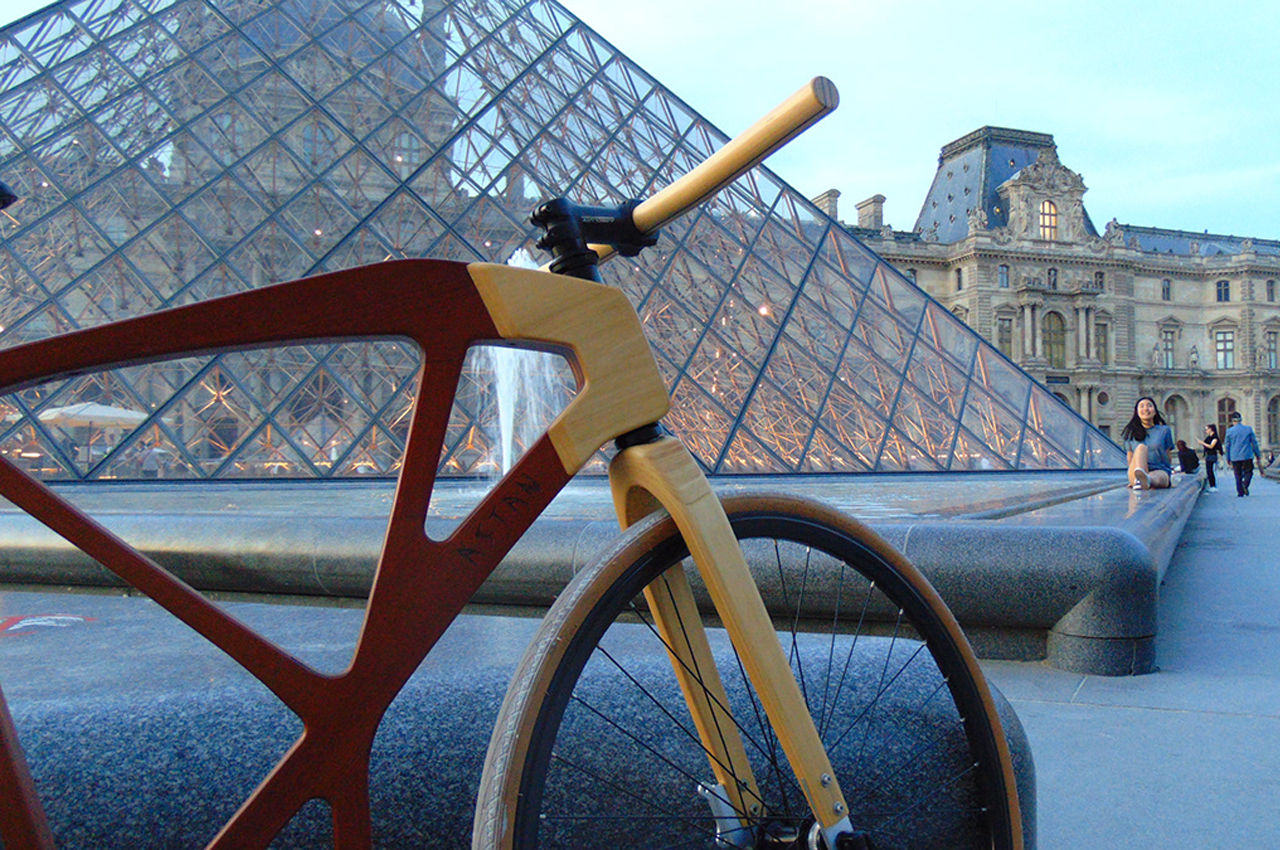
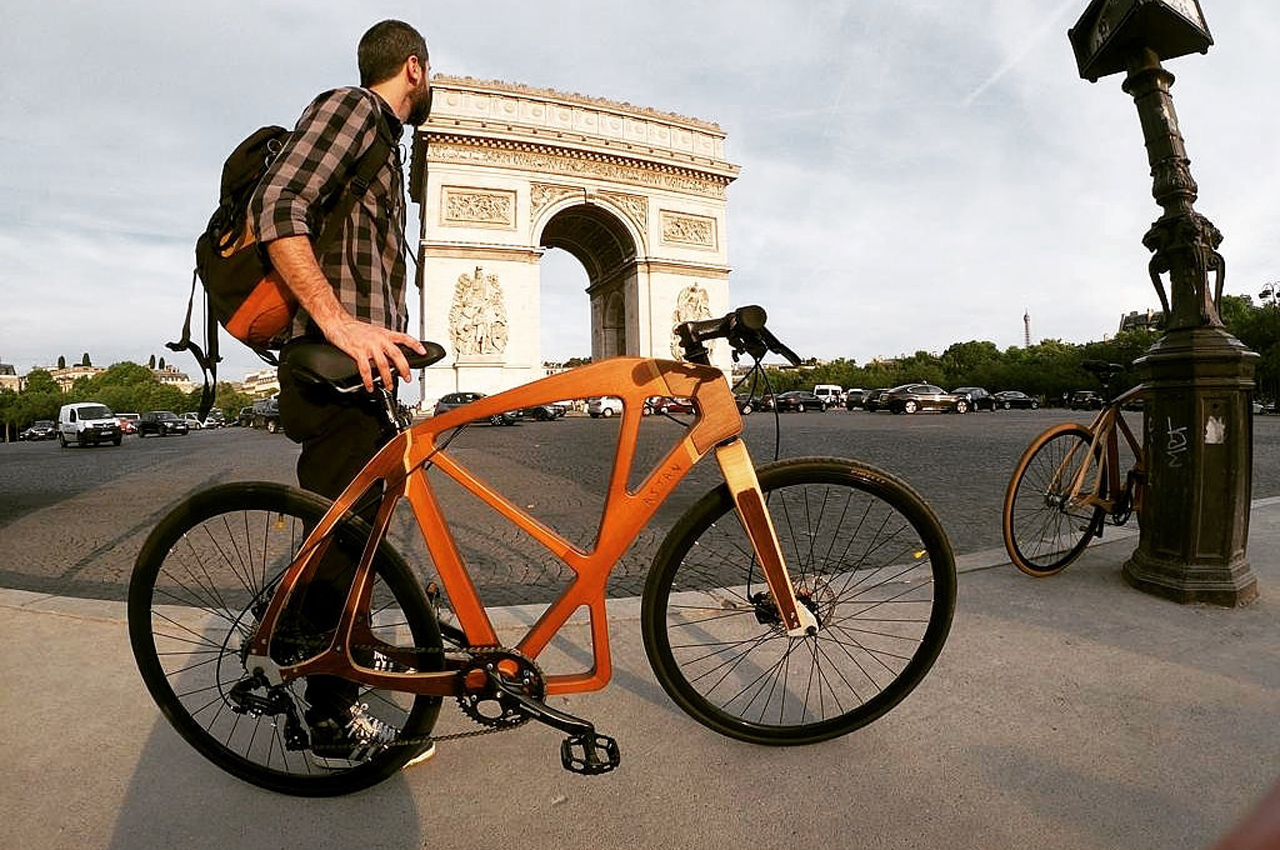
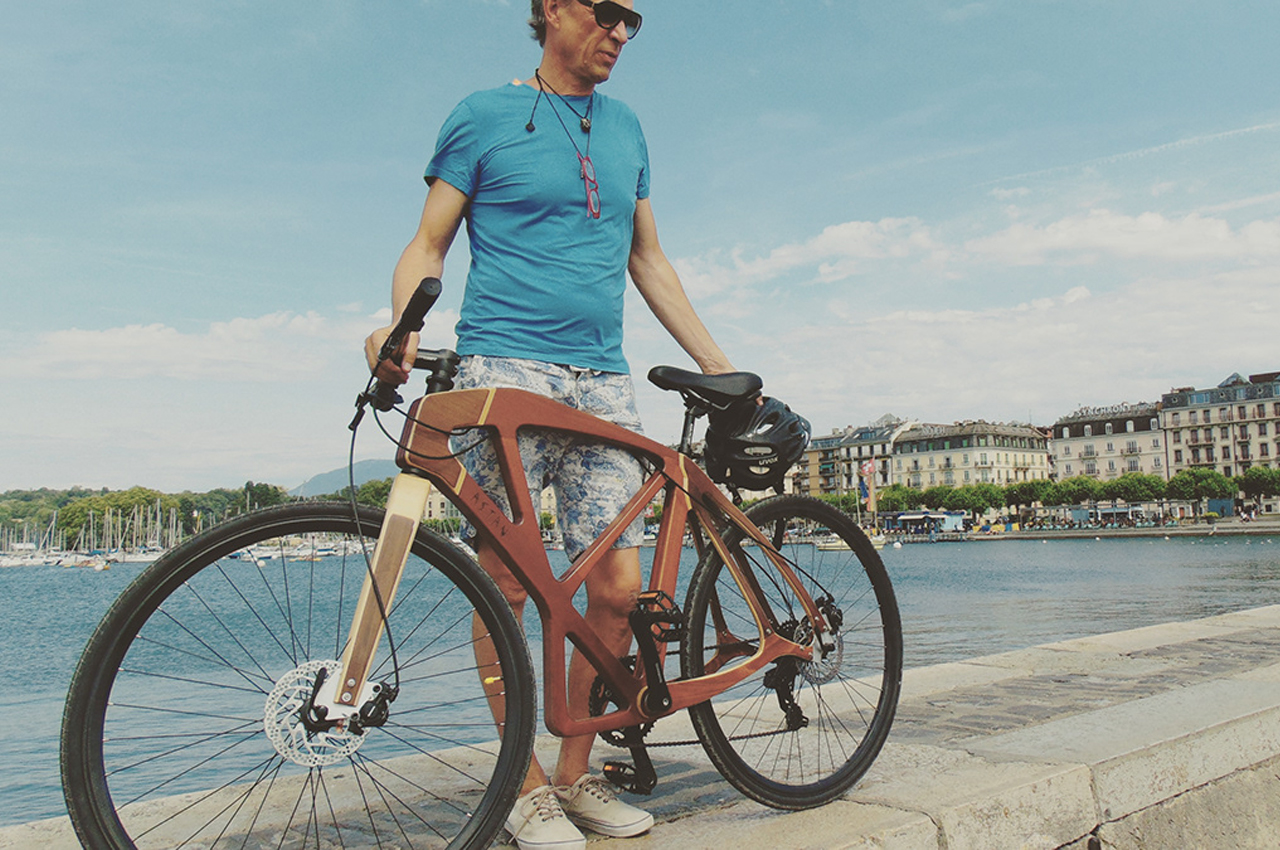
The post This plant-based bike is made from natural fibers and glued together with plant resin first appeared on Yanko Design.
from Yanko Design

0 Comments